#gabriel no one cares about the 2007 movie
Text
hot take: the witches' costumes in the 2007 movie and serafina's season one dress are superior to the season two and three dresses
#*001. ham is my jam // ooc.#gabriel no one cares about the 2007 movie#{but like the dresses are literally described as scraps of silks}#{like they're there for OTHER PEOPLE'S comfort not the witches}
5 notes
·
View notes
Text
"Saturday Night" Screens At Nashville Film Festival

Jason Reitman came to the Nashville Film Festival on 9/21/2024 with his newest film, “Saturday Night,” a re-enactment of the opening night (October 11, 1975) when “Saturday Night Live” went on the air “live” for the first time. Writer/Director Jason Reitman brought the casting director, John Papsidera with him. That was a master stroke, because this re-enactment of the opening night of “Saturday Night Live,” boasts a star-studded cast. There are so many up-and-coming young talents (and established talents, like Willem Dafoe and J.K. Simmons) involved that it is almost impossible to list them all. But it’s worth trying so that you can keep an eye out amongst the over 80 speaking parts to figure out who that individual was, (in historical terms). We can marvel at the job that casting ”Saturday Night” represents.
THE CAST
The plot is told through the eyes of the creator of “Saturday Night Live,” Lorne Michaels. Michaels is played by Gabriel LaBelle, who was cast as young Steven Spielberg in “The Fabelmans” (2022). Jon Batiste plays Billy Preston. Kaia Gerber (daughter of Cindy Crawford) is Jacqueline Carlin. Finn Wolfhard (“Stranger Things”) portrays an unnamed NBC page, Lamorne Morris (recent Emmy winner for “Fargo”) is Garrett Morris. Tommy Dewey (“Casual”) is head writer Michael O’Donoghue. Nicolas Braun (“Succession”) handles two roles, as Jim Henson and Andy Kaufman. Matthew Rhys (“The Americans”) is George Carlin. Cooper Hoffman (“Licorice Pizza”) plays Dick Ebersol. Andrew Barth Feldman (“No Hard Feelings”) is Neil Levy. Taylor Gray (“Star Wars: Rebels”) is Al Franken. Rachel Sennott (“Bottoms”) is Lorne Michaels’ first wife, Rosie Shuster. Dylan O’Brien (“Maze Runner,” 2014) is Dan Aykroyd. I’ve probably failed to properly mention a few of the up-and-coming stars of tomorrow that are in this film about 1975’s up-and-coming stars of tomorrow You’ll want to see how close the actors come to resembling the real "Saturday Night Live" stars.
There are over 80 speaking parts in the film. John Papsidera (a sometimes Nashville resident), who also worked on “Oppenheimer,” described that as a huge number. The most difficult cast member to decide upon turned out to be Dan Aykroyd, (said the duo in the Q&A after the screening). With the other cast members, they said, they “tried to find the essence of the person. The movie is about who they are.” The key was to find one main characteristic per character. Chevy Chase was primarily portrayed as egotistical, Garrick Morris was trying to identify how he fit into the cast, O’Donaghue displayed the ability to say the nastiest things but have them come from a place of humor. Gilda Radner was always taking care of others...
THE PERFECT DIRECTORIAL CHOICE
Back in 2007, right after “Juno” made waves for Reitman with Best Director and Best Picture Oscar nominations, Jason was asked what he wanted to do next. He mentioned his desire to write for SNL (in addition to continuing to direct). Jason was given a one-night stand opportunity to participate in the behind-the-scenes goings on of a SNL episode. Reitman shared that Ashton Kutcher was the host (and starred in the skit Reitman wrote, entitled “Death by Chocolate”). Gnarls Barkley was the musical guest “which gives you an idea what decade it was,” laughed Reitman.
THE MUSICAL SCORE
“Jon Batiste is a genius unlike anyone I’ve ever met in my life. He has a photographic memory of sound. We decided we should try to do the sound track the way they did SNL: live. There is music in the movie that would never have been there if Jon hadn’t been giving it to me like that.” Batiste’s rendition of “Nothin’ from Nothin” that kicks off the first show is electric. Batiste’s interpretation of the Afro-haired musician (who actually wore wigs for his gigs) was spot-on.
SCRIPT
The writing shows Reitman’s award-winning touch ( Gil Kenan is co-writer). Reitman’s film “Juno” won a nomination for Best Screenplay based on Diablo Cody’s script in 2007 and “Up in the Air” won the Golden Globe in 2010 for Best Screenplay (based on the Sheldon Turner book). “Up in the Air” was also Oscar-nominated (2009) for Best Adapted Screenplay while winning the BAFTA that year.
The script for "Saturday Night" has more zingers and one-liners than any film released this year. Here’s one quick example, “Let me know when my expectations exceed your capabilities” (Head writer O’Donaghue to the lighting crew, after lights nearly fall on the performers.) Another good one, aimed at a meddling middle-aged female censor (Catherine Curtin as Joan Carbunkle; no relation to Jane Curtin): “I’ve heard that love is blind, and now I know why.” One running joke involves how the writers constantly try to sneak risqué sexual references past NBC censor Carbunkle by mis-explaining a variety of sexual terms.
AWARDS
When I spoke with Jason Reitman and mentioned meeting him previously In Chicago in 2018, the year of “The Front Runner,” he suggested that I might be one of the few at tonight’s screening who had seen the film. Reitman added, “It turns out that people were less interested in Gary Hart’s Senate campaign than in Saturday Night Live.” Sad, that. “The Front Runner,” “Up In the Air,” “Tully,” “Thank You for Smoking” and “Jennifer’s Body” are among my favorite films by any director currently working. Reitman also produced (but did not write or direct) the 2011 DuPlass Brothers comedy “Jeff, Who Lives At Home” with Susan Sarandon, Jason Segel, and Ed Helms.
STYLE
“Saturday Night” is shot using 16 millimeter film. The pacing of the film is aided by the use of real time as the cast struggled to make the project gel before 11:30 p.m. on Saturday night. This time-line adds to the tension. The great (and oft-nominated Willem Dafoe) portrays David Tebet, the Chief Suit who will decide if “Saturday Night” goes on the air live or if re-runs of Carson’s “Tonight” show, bump it. Like “Apollo 13,” even though we know how that resolves itself, it adds tension to the plot’s story and emphasizes the show’s conflict and dilemma. (*No idea if this was legitimate or poetic license for the film.)Referencing the frenetic pace of the show on that night, the Michael Ritchie (“The Candidate”) style was described as “Robert Altman on amphetamines.”
This is such an ambitious project. Congratulation to all involved! "Saturday Night" documents the passing of the torch from one comedic generation to another. With the current political situation in the United States, passing the torch from one generation to another is a hot topic. With Jean Smart (“Hacks”) set to host the opening program of the 50th year of “Saturday Night Live," this edge-of-your-seat attempt to show who the original “Saturday Night Live” not-ready-for-prime-time players were is a great movie. As Reitman said, “It requires so much control to pull off the chaos.” And there is plenty of orchestrated chaos in this one.
CONCLUSION
"Saturday Night" is “the prism that captures the light of an emerging generation.” The 50th season of “SNL” is upon us. The movie's release date of October 11th is an homage to “Saturday Night Live’s” original debut date. Let the comedy begin!
Does “Saturday Night” work?
Yes, it does. Check it out at your local theater beginning October 11th, 2024.
0 notes
Text
1161
survey by pichu4850
What color do you think of when I say...
Anger?
Red, or a really bright red-orange.
Confusion?
Gray.
Inspiration?
Sky blue. Both word and color give off calming vibes to me.
Shy?
Something like an off-white shade, and maybe even pastel pink.
Agony?
Olive green was the first color to come to mind, though I have no idea why.
Sleep?
Dark blue, like the night sky.
Chipper?
Yellow.
Beautiful?
Red, the way roses are.
Morning?
Light blue or yellow.
Would you rather be named...
Andrea or Aimee?
Andrea.
Emily or Erica?
Emily. I know an Erycka that I’m not too fond of, so this is an easy pass.
Kelsey or Casey?
Casey, though I’d mix up my name a bit and have it be pronounced and spelled as Cassie.
Madeleine or Marina?
Eh, not really a fan of either but I’d mos likely go for Madeleine.
Alec or Aaron?
Alec.
Ryan or Ross?
Not a fan of both names as well though I’d probably go with Ryan, but only as a feminine name.
Dylan or Daniel?
Dylan.
Jack or Jordan?
I guess Jack, if I have to pick.
Gabriel or Gavin?
Gabriel.
How often do you...
Brush your teeth?
Once or twice a day.
Eat breakfast?
Twice a week, during weekends; though sometimes I’ll end up skipping it for an entire week altogether.
Check your email?
I literally never check my personal email anymore after having gotten hired, but I know I should quit that habit and check it every once in a while just in case an intriguing opportunity might come my way. My work email is a different story; I have to use it everyday. I open my emails even during weekends so that when I report to my shift on Monday, my Gmail won’t look as clogged.
Go to the mall?
When quarantine protocols loosened up a bit I used to go either on Saturdays or Sundays for some me time as well as some much-needed time away from the house, for the sake of my mental health and sanity. But now that we’re going through another surge in cases, no one’s allowed to go out again and malls are back to just keeping the essential stores open.
Go to the beach?
A few times a year, at least before the pandemic. I haven’t been to the beach since 2019.
Play card games?
Only happens once in a blue moon, when I get together with friends and someone happens to bring a deck of cards. This isn’t a usual occurrence with any of my friend groups, though.
Have at least 20 minute phone calls?
Never. I have 20-minute Google Meet and Zoom calls instead.
Paint your nails?
They are never painted.
Wish you were happier?
Every now and then.
Did you ever want to be...
A veterinarian?
Yes, when I was younger. I once stumbled upon an interview with a horse vet on one of my kid’s almanacs and thought what they did was so cool.
An astronaut?
Yup, definitely became a big obsession of mine at one point in my childhood. I still think it would be cool to go to outer space and should the opportunity ever become accessible in my lifetime, I wouldn’t want to miss out on it.
An artist?
Not really. I knew from the get go I wasn’t meant to be one.
A school teacher?
I would guess yes, but I definitely wasn’t as interested in teaching compared to being an astronaut or like a firefighter.
A housewife?
Lmfao yeah. This was the answer I would give when I was like 8 up until I was probably 10 and I knew it stressed out my Asian mother big time. My grandpa got a kick out of it, though.
A firefighter?
Yes. This was up there with astronaut.
A princess?
Not so much.
A lawyer?
I definitely considered law for a brief period, but it was already during my latter college years. There wasn’t enough time to mull over it. But hearing all the law school horror stories from my friends kind of made me relieved I didn’t push through with it; I knew I wasn’t passionate enough about law to want to go through all the hardships that come with law school, so I was fine letting that dream go, and still am.
A doctor?
This was never a dream of mine.
Would you consider yourself...
Materialistic?
Yes.
Pessimistic?
It comes out occasionally, but I don’t think it’s a main trait of mine that people would generally see me as.
Avoidant?
Not so much. I can be shy and anxious sometimes but I get over it at some point.
Sarcastic?
Only occasionally. I wouldn’t say I speak the language.
Talkative?
Definitely not. I hate being in the spotlight, and whenever it’s my turn to share a story or talk in a group I usually have the tendency to rush through it or make it as short as possible so as to return the spotlight on someone else. I’ve always been more of a listener.
Strange?
Maybe not strange but weird to an extent?
Intelligent?
I guess in some ways.
Lucky?
In some ways I am, but I also got handed the short end of the stick in other contexts.
In the next twenty-four hours, will you...
Talk to someone you care about?
Probably. I talk to at least one friend a day.
Go to work?
Yep, I’ll finally be going back to work since the Holy Week break is over. My workaholic self felt kinda unsettled with all the free time, so I’m actually kinda relieved.
Go to school?
I’m not in school anymore.
Be in a different city?
Nope, it’ll be working from home for me like usual. We were initially allowed to book visits to the office if we really needed to go there to pack some goodies and stuff, but because of re-heightened Covid protocols our admin has once again prohibited anyone to go there for the meantime.
Read a book?
I highly doubt it. I haven’t read any in months.
Watch a movie?
Nope. It’ll be a Monday coming from a 4-day break, so it will be incredibly busy tomorrow as there would be a lot to catch up on.
Go to a dentist/orthodontist appointment?
No, I won’t.
Do your laundry?
My parents probably will seeing as our hamper was nearly full the last time I checked.
True or False: Family...
I have two brothers or more.
I only have one brother.
My mom lives with me.
This is technically true but isn’t phrased right in my case. I’m currently living with my parents.
My grandparent(s) live with me.
No, we moved out of our duplex (where I did use to live with my grandparents) well over a decade ago.
I have half-siblings.
Don’t have any.
I am the oldest in my family.
Eldest child, that is.
I am an only child.
I have two other siblings.
I have 15 cousins I can name off the top of my head.
Easily. My first cousins are less than 15 in total, but I know a good number of my second and third cousins as well so this is a cakewalk.
The nearest Aunt or Uncle lives less than an hour away from me.
The aforementioned duplex we moved out of is just at the next village; we didn’t move too far so that we can continue visiting them.
True or False: Food...
I am allergic to chocolate.
I’m not, fortunately. I’m not crazy about chocolate but I’d be pretty miserable if I could never have it either.
I like vegetables more than fruit.
Infinitely more, hahaha. I hate fruits.
I have tried pizza dipped in ranch sauce.
Ranch isn’t a very common dressing where I’m from, so it’s not usually offered in restaurants. Given the chance, though, I’d definitely try my pizza with ranch at least once.
I've never eaten kiwi fruit.
True, but then again I’ve never eaten most fruits and don’t plan to.
I love junk food.
I love to try new food.
Ketchup goes best with fries (chips).
I don’t like ketchup and barely put it on anything.
I like fried rice.
I haven’t met an Asian who doesn’t like fried rice.
I can prepare dinner for myself (using a stove or oven).
I hate sushi.
How many...
Pairs of shoes do you have?
A little over 10, maybe? I don’t feel like counting in my head rn.
Songs do you have on your music player?
I don’t have a music player anymore.
Hours of sleep did you get last night?
Around 4.
Times have you had alcohol?
Like, ever since I started drinking when I was 18? I never kept track lmao but if I would guess, maybe around 50-60 times? I’m not a regular drinker; I drink probably once or twice a month at most.
Books have you read/started reading in the past month?
None.
Windows in your house/apartment are open?
I know my parents and sister have their windows open at the moment, so that’s 2. Mine are usually open as well, but I’ve turned on my aircon so I’ve closed them for the night.
Pets do you have?
2.
Kids do you have/want to have?
I’d cut it off a a maximum of 3 kids, but having just 1 would already be so nice.
Minutes does it take to get from your home to school or work?
I work from home, but in the two times I went to the actual office it took anywhere between 45 minutes to an hour.
Have you ever...
Spilled a cup of grape juice on the carpet?
I don’t think I’ve ever even encountered grape juice in my entire life.
Played spin the bottle?
I don’t think I’ve ever played this. My friends and I usually resort to truth or dare.
Played Twister?
Yes, and there are many fond memories that come with it as well. So when I was 7 years old I befriended Katreen, and her mom and mine hit it off instantly so they started this arrangement where every Friday, her mom picked me and my sister up from school along with Katreen and her sisters, and we’d stay for several hours at their place until my mom would pick us up. Her mom was an amazing host and every week we’d play Twister, watch Pokemon, read books together, etc; anything to keep us comfortable and entertained.
Been caught doing something you weren't supposed to be doing?
It’s bound to happen every now and then.
Walked out of a movie because it was horrible?
I’ve gotten this feeling a few times but I always stayed in my seat because I paid for the damn ticket.
Given the finger to someone on the street?
Oh most definitely, as well as drivers passing by. And it’s always been towards men that are being disgusting pigs.
Been so sad/angry that you started laughing?
Sure.
Been in a wedding?
Yes, but I only got invited as a kid since I was usually picked to be one of the flower girls. I haven’t been to a family wedding since 2007.
Been in a situation where you almost died?
Probably not died but almost substantially injured, sure.
Misc...
Are you stressing out about anything right now?
Just worried about the deluge of tasks that will inevitably come at me tomorrow but knowing how easygoing my bosses are, I know I’ll be able to ease up soon enough.
Do you think before acting or act before thinking?
I used to be the latter but I now see the importance of first considering possible consequences of or how others would be affected by my actions.
Do you act upon your emotions and instinct, or logic and reasoning?
Again, I used to be one of these, this time the former. Now that I’m at a much more stable and peaceful place in my life I try not to let my emotions get the best of me.
What are some personality traits you find appealing in a potential partner?
I had a number of negative experiences in my last relationship so forgive me for scraping the bottom of the barrel when it comes to my expectations lmaaaao – I’d love for someone to be sensitive to my needs and feelings, and for them to be able to own up to their mistakes or hurtful habits and know how to apologize and be open to changing if it’s for their self-improvement.
How have you changed as a person in the last 5 years?
I tolerate less bullshit now. I think I’ve also grown to be happier and a lot more stable, emotionally. I also have a better sense of what I want out of life and where I want to be, and I’ve also learned to be more sociable and open up to people.
If you could do anything you wanted right this moment, what would it be?
Order sushi :(
Is there anyone you can totally relax and be yourself around?
Yes, that’s what my friends are for. If I can’t feel comfortable around my friends, I’d view that as a problem.
Did you ever wanted to say something to someone, didn't, and regretted it?
No.
Are you scared about the future?
I’m scared of the idea of not meeting some of my goals, like having a family; but I’m also excited about what the future could bring me.
4 notes
·
View notes
Text
Blood and Chocolate: An Adaptation in Name Only
Previously: Section 0 – Introduction, Section 1 – The Book, Section 2 – Adaptation Challenges
Section 3 – The Adaptation
Preface: The 2007 adaptation of Blood and Chocolate directed by Katja von Garnier and written by Ehren Kruger and Christopher Landon did not receive critical acclaim. It stands at 11% on Rotten Tomatoes, and a New York Times review by Jeannette Catsoulis called it “uninvolving and cliché-ridden”. The box office returns were similarly underwhelming, grossing $3.5 million domestically and $6.3 million internationally against a $15 million budget – an $8.7 million loss for a production company used to receiving at least a modest return on investment for other, similar properties.
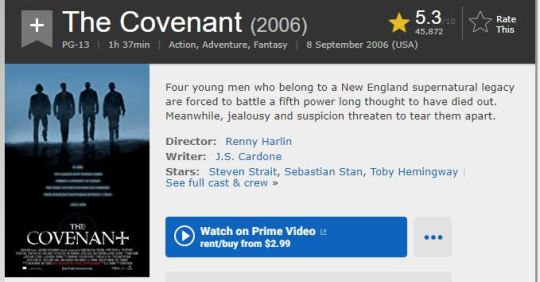
(Ahem.)
But, does it have any merit?
It may have failed by the metrics of profitability and critical response, but that does not mean that the film was an entirely, or even partially, failed endeavor.
Summary: Following a surprisingly faithful Romeo and Juliet plot, the movie Blood and Chocolate centers on Vivian, the werewolf Juliet, an orphan living in Bucharest with her Aunt Astrid, who serves as a rough Nurse analogue. They are ruled by Gabriel, the Paris, a tyrannical pack leader with romantic designs on Vivian. The human Romeo, Aiden, is a wandering American artist who encounters Vivian anonymously in an empty church, whereupon he becomes determined to find and court her.
Meanwhile, tensions are rising with the Tybalt character, Vivian’s cousin Rafe. He discovers Vivian and Aiden’s romance, threatens Aiden, and is eventually killed by Aiden in self-defense.
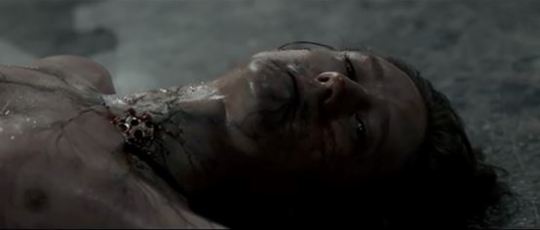
Eventually, Vivian gets poisoned and she and Aiden attempt to escape the city. She is captured and locked up in Gabriel’s headquarters, where Aiden arrives and rescues her. In the process, Vivian kills Gabriel. Afterward, they escape, steal Gabriel’s car, and drive off into the sunset.
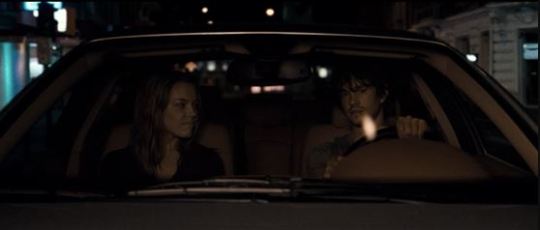
Also, there’s a prophecy about Vivian? More on that later.
Themes: The themes of the movie deviate sharply from the themes of the book. No longer does Vivian struggle with what she wants as opposed to what she needs, because the movie removes any such opposition.
In the movie, as in the book, Vivian wants to be with Aiden, but the movie rearranges the rest of the plot and the characters so that what she no longer needs to accept (and find a partner who also accepts) her dual nature as a werewolf to find happiness and fulfillment.
Instead, what the film version of Vivian needs is to get away from her creepy, possessive pack leader and forge her own destiny. This “need” no longer stands in opposition to her “want”. On the contrary, the two share a resolution – run away from Bucharest with Aiden.
The tension between the human and the animal sides of Vivian’s nature is also reworked. In the book, she can’t pretend to be human, but she also can’t lose control and give in to her animal side. She needs to balance both.
The movie, on the other hand, has Vivian definitively choose her human side by choosing Aiden. Actually, no, it’s not just that she chooses her human side – the movie shows her actively rejecting her werewolf side throughout the movie. And, well, given the way that werewolf society is treating her, I can’t really blame her. I wouldn’t fight to stay with these people either. They were ready to pair her off with a man old enough to be her father without her consent.
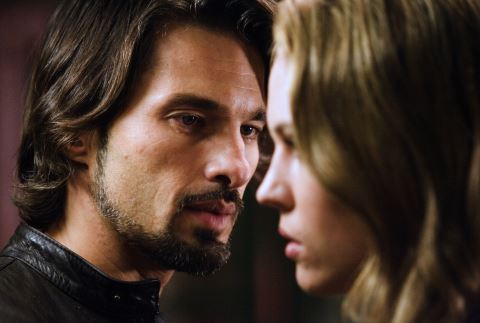
Honestly, I wasn’t really wondering why she wanted to leave with Aiden, but more wondering why she hadn’t left already.
This leads into the theme that was added for the movie: destiny vs. choice. As a girl from “the line of Kings,” Vivian is destined by a nebulous prophecy to lead the Bucharest pack into the Age of Hope. Who prophesied this? If she’s from the line of Kings, why is Gabriel leading the pack? Does Vivian even fulfill this prophecy? We never really find out.
Don’t get me wrong, I’m a sucker for a prophecy storyline. It just – it has to matter. And the prophecy in this movie does not matter. You could cut every mention of it, and nothing substantial would change. One of the biggest mysteries about this movie is why the screenwriters added a prophecy element if they weren’t going to bother to pay it off.
She is also destined (either by the prophecy or because Gabriel says so) to be Gabriel’s next mate, continuing the tradition of the pack leader choosing a new mate every 7 years. Vivian does not appear to have a choice in the matter.
Throughout the movie, Vivian feels chained by this destiny, leading her to keep Aiden at a distance and warning him away from her. Aiden, however, ignores her boundaries and her clear wish to be left alone. He tells her that she needs to ignore her family’s plans for her and make her own choices, mostly because he’s hoping that she’ll chose to date him.
In the end, Vivian accepts Aiden’s outlook, choosing to defy Gabriel’s wishes by saving Aiden and escaping Bucharest with him.
Highs: There are two major elements that I like about this movie, and I do honestly like them. I’ve watched this movie a lot, and, no, it’s not just hatewatching. I genuinely enjoy this movie.
o The Cast: I really like Agnes Bruckner. She was great in the slasher movie, Venom, and I think she made an admirable Vivian. Despite some of the cheesier lines, she turns in a decent performance. I believed that she felt guilty about her family’s deaths. I believed that she felt torn between her attraction to Aiden and her duty to her pack. I even believed that moment in the ending where Vivian can’t bring herself to kill Gabriel, despite the threat that he represents.
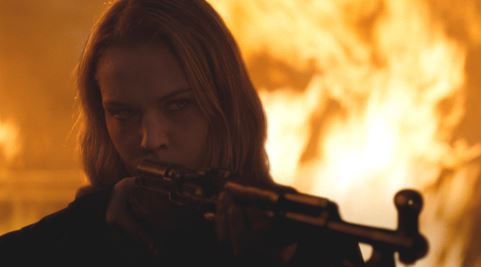
Of course, the script ruins that seconds later when she just… shoots him anyway? Also, and this is a violently American thing to say, but did they have to use the wimpiest sounding gun possible?
I think that Hugh Dancy as Aiden was the standout performance of the movie. He portrayed Aiden as playful, sweet, and resourceful, and his switch from sensitive artist to unlikely badass is nicely set up with his story about defending himself against his abusive father. I also think that he and Bruckner have some decent chemistry. Say what you will about the romantic fountain montage - they look like they’re genuinely enjoying each other’s company.
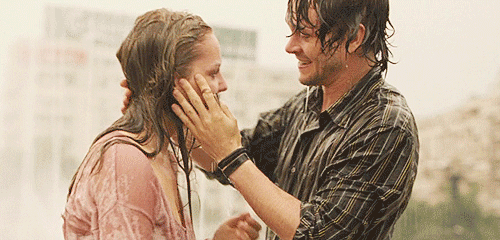
Also, he spends the last half of the movie bruised and slightly bloody, and I don’t mind that at all.
As for the rest of the cast, I think they gave fine performances despite the material that they had to work with. When movies fail, there seems to be an impulse to blame the cast and rip their performances apart – but I won’t. I don’t blame the cast for the commercial and critical failure of this movie – I blame the people who had actual creative control (the producers, director, screenwriters, etc.).
o The Concept: An ancient dynasty of werewolf leaders extending from primeval Europe into the modern day? Yes fuckin’ please! This is exactly the kind of canon expansion that I was craving from the book!
And, okay, yeah. The book’s version of werewolf society is very different from the movie’s version. In the book, werewolf packs are moderately sized clusters of families and individuals ruled by an alpha pair. Other werewolf packs exist, but there doesn’t seem to be any person or group governing werewolf society as a whole.
This would seem to directly contradict the movie’s take on werewolf society, but it doesn’t have to. The book’s werewolves originated in western Europe, and from there emigrated to the US in the 1600’s. The movie’s werewolves originated in eastern Europe and stayed there. There’s no reason why those two groups of werewolves couldn’t have started with or evolved two different social structures leading up to the present day.
In fact, if you can ignore the shared titles and character names, the movie Blood and Chocolate can be viewed as a new story set in the fictional universe established by the book Blood and Chocolate. And that’s how I choose to view this– it lets me get past my nerd rage and enjoy the movie for what it is.
Lows: While I do honestly enjoy this movie, I would be lying if pretended that it was flawless. Blood and Chocolate didn’t get its reputation by accident. Here are my thoughts on some of the more egregious missteps.
o The Script: Okay guys, we need to talk. I’ve seen people defending this movie, saying that it’s an unfairly maligned gem, and I CAN’T. Guys, the dialogue. Have you LISTENED to the dialogue?
Aiden, pleading: “I’ll take the train, I swear it. I’m gone. I’m on that train.”
Rafe: “I AM THE TRAIN!”
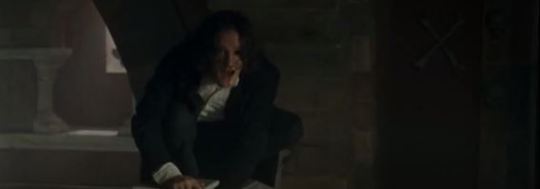
(Boy, WHY are you crouching on the railing like a heterochromatic gremlin?)
Like I said in the last section, I don’t blame the actors for the movie’s failure. I don’t. They had no control over this shit. I do, however, blame the screenwriters; all SIX of them. This film had SIX separate people working on the script and was still released with Hugh Dancy shouting, “If you cared a goddamn thing about me, you would have left me before we ever met!”
This is astonishing for its misunderstanding of linear time if for nothing else.
Seriously, though – Hugh Dancy, cinnamon roll and internet darling, cannot make these lines sound good. When even the best actor in your movie can’t make it work, you know that the script is baaaaad.
o The Wolves: Remember the bit about practical effects vs. CGI in the previous post? Yeah, the filmmakers went hard on the CGI. It made sense given the relatively small budget to go the CGI route as a money saving maneuver. However, the director, Katja von Garnier, decided to use the CGI in the most ridiculous way possible.
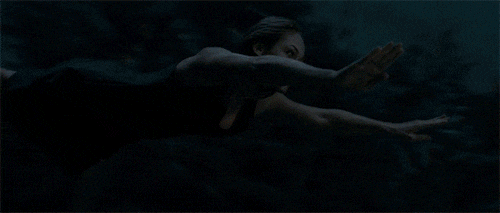
(🎶 FIGHTING EVIL BY MOONLIGHT! 🎶)
The werewolves jump into the air, turn into an ethereal glow, and emerge as wolves. While this is not an inherently bad idea (it’s different, and it could, in theory, look cool), the execution was a huge misfire. Seeing the actors leap forward into a sparkly, pastel shimmer was never anything but ridiculous, and the Sailor Moon aesthetic of it just did not fit with the grungy, realistic look of the rest of the movie.

(Hey, cinematographer: if you want these transformations to fit with the rest of the movie, maybe make the movie LESS F*ING BROWN?)
Additionally, the transformed werewolves were simply real wolves. Listening to Katja von Garnier’s commentary, you come away with the impression that she is suuuuuper proud of getting the cast and crew to work with live animals. However, the wolves that they used are a bit on the smaller side.
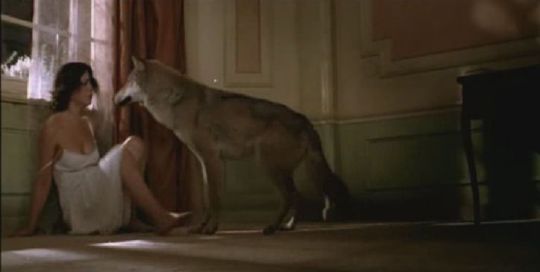
As a result, they didn’t really inspire much fear. For example; in the scene where Rafe murders the girl he’s been stalking, you see both the girl and the wolf in the same shot, and it absolutely kills the tension. Like, girl - roll up a newspaper and boop him on the nose.
o Rafe: The screenwriters desperately wanted Rafe to be menacing, and bless Bryan Dick for trying, but it does not work at all. Rafe in the movie is petulant, sleazy, definitely an asshole, and explicitly a murderer, but I never believed him as a threat.
In the confrontation at the chapel, Hugh Dancy stands half a head taller than Bryan Dick, and while neither of them are exactly musclebound, it’s pretty obvious who would win in a fight. For me to buy Rafe as a legitimate danger, he needed to be less foppish, more unhinged, and just physically bigger.
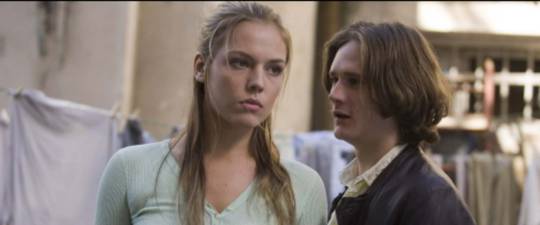
(FFS, Vivian is taller than he is! How is he supposed to be intimidating?)
o Gabriel: I don’t know who decided to turn the romantic lead of the book into the jealous villain of the movie, but they need to be slapped across the face with a trout. It’s been over a decade since the movie came out, and I have learned to shrug off most of the bizarre adaptational choices, but this one still just pisses me off. The evisceration of Gabriel’s character is the biggest betrayal of the source material.
In the book, Gabriel was a foil to Aiden, and Vivian choosing Gabriel symbolized her acceptance of her dual nature. It meant that she wouldn’t have to compromise her identity to be accepted and loved.
The adaptation could have provided an opportunity to rework Gabriel’s character arc. It could have cleaned up the age-gap ickiness, removed the non-consensual kiss, nixed the prior relationship with Vivian’s mother and generally made Gabriel as a love interest more palatable for movie audiences.
But, whatever. The filmmakers already threw out the core of the human vs. animal theme from the book, so why not just utterly warp Gabriel while they’re at it? Plus, the clueless human love interest vs. the lecherous supernatural stalker dynamic worked for Underworld, so it’s going to work here, right?
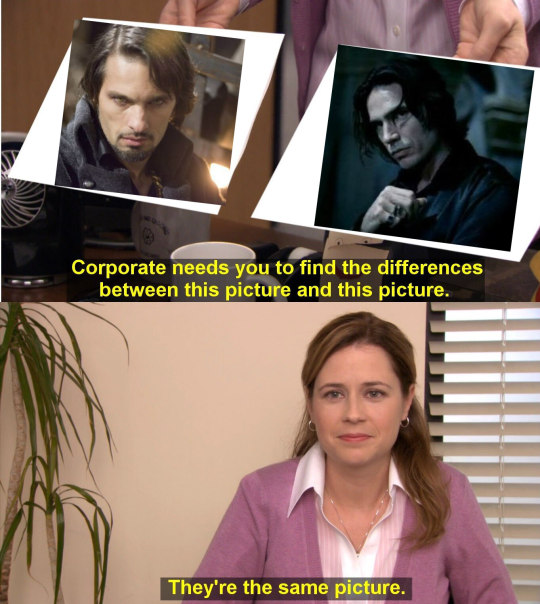
The Stuff I’m Choosing Not to Nitpick (in depth): I just- I don’t know, man. I used to get really worked up about this stuff, but I don’t really feel like devoting any real analysis to these points. Take these potshots and do with them what you will.
o The Parkour: Time has not been kind to parkour. The filmmakers gambled on it being cool for the long haul, and they lost that wager. I get that it takes a lot of skill, and I get what the filmmakers were trying to do with it, but it just looks silly.
o The Hunt: I mean, it directly violates the most important werewolf law from the source material, but I’m willing to believe that this ancient werewolf faction in Romania came up with a sanctioned way to hunt humans, so I can forgive this.
o The Eye Thing: The early-mid aughts were really impressed with the power and symbolism of colored contacts, weren’t they?
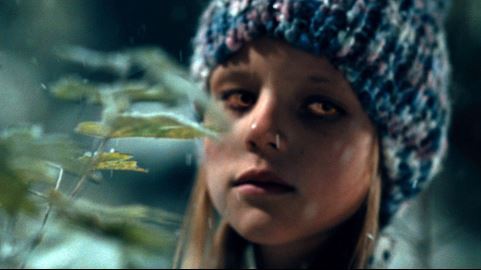
o Astrid: They mashed Astrid and Esme’s characters together and called the resulting chimera Vivian’s aunt. I don’t hate this change as much as I used to. I mostly just wonder why they bothered. The movie had already changed the book’s storyline so much that neither Astrid nor Esme were necessary for the new plot. They could have cut this character out entirely and no one would have missed her.
o The White Wolf: Of course the main character turns into the only white wolf in the movie. ‘Cuz symbolism!
o The (implied) Sex Scene: Sure, she’s dying of silver poisoning, you’re both hiding in a decrepit film warehouse and the werewolf mafia is hunting you, but GO AHEAD. This is the ideal time AND place to bone!

(This woman is clearly DTF.)
Verdict: I want to be really clear on this point – I love this movie. I mean, let me remind you of my cinematic tastes.
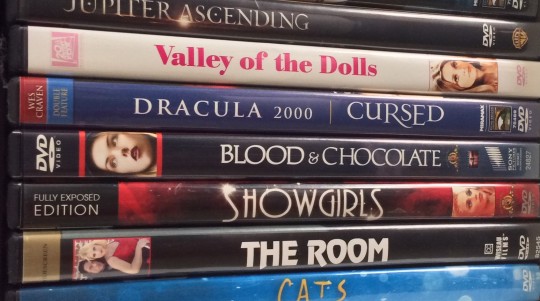
Here’s the thing - there is a difference between movies that are “good” and movies that are “enjoyable”.
Blood and Chocolate is not a “good” movie. The plot is formulaic as hell, the dialogue is laughably inept, and any actual potential it had to do something new and innovative with the werewolf genre was squandered. Seriously – one of the remarkable things about the book was how it centered a monster story on the monsters and made them sympathetic. The movie? Turns the monsters back into one-dimensional bad guys. But, hey, at least they made the transformations maaaaaaagical!
That said, Blood and Chocolate is absolutely an “enjoyable” movie. I have watched this thing dozens of times since it came out, and each time I find something new to amuse me. The dialogue is hilarious, the special effects miss the mark so badly, and every time you find a new plot hole, an angel gets its wings. What’s more, it contains enough genuinely good elements to balance out the bad. It is a delightful example of low camp, and a worthy addition to any “so bad it’s good” film collection.
I’m not alone in that assessment, either. If you look at amateur reviews of the movie, you’ll find a lot of people defending it despite its flaws. It has an audience!
So, why didn’t it make more money?
Next Week: Section 4 – The Autopsy
#blood and chocolate#annette curtis klause#werewolves#katja von garnier#agnes bruckner#hugh dancy#olivier martinez#B&C-AAINO
17 notes
·
View notes
Photo
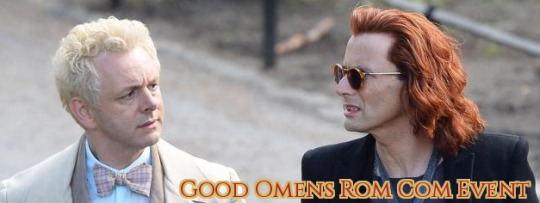

GO Rom Com Spotlight: @epi-vet
The most excellent @epi-vet (also Epivet on AO3 and epivet on Spotify) has claimed Persuasion to adapt for Good Omens in the Good Omens Rom Com Event.
For reference, here’s a little background about the source material!
About Persuasion: Eight years ago, Anne Elliot rejected Frederick Wentworth, the man she loved, out of a sense of duty and obedience. Now an ignored and faded spinster, she follows her financially stricken family from their home, only to be reintroduced to the now successful and wealthy Captain Frederick Wentworth. With their roles reversed and Captain Wentworth the eligible and wealthy bachelor, Anne navigates the scheming society that still tries to keep them apart.
We spent some time chatting about how the adaptation is coming so far, as well as future plans for it! Now, get to know @epi-vet a little better!
* * *
goromcom: You know how if you open a Tumblr chat with someone you haven't chatted to before, Tumblr tells you two things they post about? I wanted to tell you that yours reports that you post "about #geeky data and #good omens". I can appreciate someone with an affinity for geeky data. Can you share any sort of interesting geeky data with us?
epi-vet: #Geeky data is fun, but my favorite homegrown tag is #QuantifiedFandom. In the real world, I work with a lot of data for modeling and prediction. I liked the idea of using those skills to understand the fandom better by looking at the data crumbs around it. Right after I saw the show, I was intrigued by how quickly Good Omens playlists multiplied on Spotify. Then I did what any totally health sane person would do. I downloaded 300 Good Omens themed playlists and started crunching numbers. Throughout the summer and fall, more and more playlists were popping up. I did a second pretty exhaustive pull of 1400 playlists in December. I analyzed the most common songs, length of playlists, artists, differences between playlist themes (Ineffable Husbands versus Demon Crowley), and more. Two of the top four songs weren’t even in the show (#1 Good Old-Fashioned Lover Boy and #4 From Eden). Bob Dylan’s You Angel You is the most underappreciated Ineffable Husbands song. “You angel, you; You got me under your wing...” Really. Google the lyrics, we’ll wait.
I’m epivet on Spotify where you can find the top 100 songs from Good Omens-themed playlists, the top 50 Ineffable Husbands songs, and my own scene by scene playlist with links to a Google doc explaining each selection and identifying key lyrics because, again, totally healthy sane person here. I’m also running the GORomCom discord-created playlists as well.
goromcom: And I listen to those playlists a lot! Thank you! But on to your rom com! You chose to adapt Persuasion. Has this story been a favorite of yours, or is there some other reason you chose it?
epi-vet: I’m a longtime Jane Austen fan. I love how she pokes at the constraints and absurdities of her time. Persuasion is my favorite because the characters are more mature, more human. Anne breaks off her engagement with Wentworth, and while she regrets how things have turned out 7 years later, she also can still see the reasonableness of her choice. The story has one villain and some unsavory characters, but many of the characters are complicated people who make the best decisions they can (except for Anne’s father who is ridiculous).
The 1995 movie is infinitely better than the 2007 one; I will brook no argument.
goromcom: I wouldn’t dare! :) What's your favorite moment of the story, and are you looking forward to presenting it in your adaptation? Any loose plans for that scene that you can share?
epi-vet: Wentworth’s letter to Anne in the dramatic climax: You pierce my soul. I am half agony, half hope. Tell me not that I am too late, that such precious feelings are gone for ever. I offer myself to you again with a heart even more your own than when you almost broke it, eight years and a half ago. *swoon*
I’m still working that scene out, so I’ll instead share some fun I’m having making poor Gabriel my comic relief. The book opens with the Anne’s father reading his own entry in the Baronetage. His rank defines him, so reading a Who’s Who provides him the reassurance he needs. Gabriel begins my RomCom loudly reading his visitation of Mary, especially loving the “Fear not, Mary” line. He soon after complains to Michael “[the humans] don’t even cower before us. Really, when was the last time we had to say, ‘Be not afraid?’” He also serves as my Lady Dalrymple in the Italian concert scene from the 1995 movie. Aziraphale is trying to keep Crowley from leaving (due to genre typical misunderstandings), and Sandalphon is pulling him back saying Gabriel needs him to explain the buffet – he’s worried he’ll Fall if he eats shellfish.
goromcom: Oh goodness, so many angel/demon shenanigans. I can’t wait. Other than those details, do you plan to stick very closely to the beats of the original story, or make bigger changes?
epi-vet: I think one of the best Jane Austen adaptations ever is Clueless. When we watch a period drama, we view everything through a buffer of temporal distance. Everything is slightly foreign, and it can soften the impact that a contemporary reader would have felt. I suspect viewers of Clueless, in some ways, have an experience much closer to Jane Austen’s readers’ experience of Emma.
I’m taking the plot of Persuasion and applying it as closely as I can to our characters from the moment the tv show ends. I did lots of character mapping and tried to stay true to the heart of the work, like Amy Heckerling did to Emma in Clueless. I did end up with one original character because I just couldn’t figure out how to work the plot with only Good Omen canon characters.
goromcom: I’m actually a big fan of Clueless as an Austen adaptation too, so I like where you’re going with this.
Let me see if I can get one more tidbit out of you before I stop! What's an interesting decision you've made in your planning so far--a notable casting decision, a changing of venue, or some other plan you have to paint Good Omens all over your rom com?
epi-vet: Since I’m writing it as post canon in the Good Omens universe rather than putting Aziraphale and Crowley into Regency Britain, I get off easy there. I am trying to take a lot of the dialog between Aziraphale and Crowley from the show and flip it. So Aziraphale is the one who needs to do something or Crowley will never speak to him again. Aziraphale is unforgiveable. Also, I’m including some nods to the Good Omens book. Crowley takes the properly demonic activity of gluing coins to the sidewalk into the tech age with an app. It, of course, backfires spectacularly. I also have a hopefully charming and funny Golden Girls reference.
goromcom: Always down for a Golden Girls reference. Rose is my homegirl. But let’s leave some things undiscovered until your story debuts, and move on to the final question. I am blatantly stealing this last question from The Good Place: The Podcast, but here goes: Tell me something "good". It can be something big or small. It can be a charity you think is doing good work, or you can talk about how great your pet is.
epi-vet: RIPMedicalDebt. For pennies on the dollar, you can wipe out someone’s medical debt. For everyone outside the US, this is a completely bizarre concept, but it’s a big deal in the US. Medical debt happens when you lack health insurance or have limited health insurance. You didn’t charge too much on your credit card. You didn’t buy a house you can’t afford. Something happened to your health, you sought the care you needed, and you are now destitute. These debts don’t get paid back often so they get bundled and sold to various institutions. RIPMedicalDebt buys those debts cheaply and then forgives the balances owed. Individuals, community organizations, churches, and other groups have used them to do immense good.
goromcom: So important, and I had no idea this existed. Thank you for sharing it with us.
And also, thank you for sharing details of your upcoming GO adaptation of Persuasion, coming very soon now!
20 notes
·
View notes
Text
Favorite Female Characters
Tagged by @mini-oddity. I’m too excited about this, y’all.
Rules: List ten of your favorite female characters in different fandoms and then tag ten people.
(I’m just going to be a blanket **SPOILER ALERT** for every show here, I’ll tag it just in case, but be forewarned.)
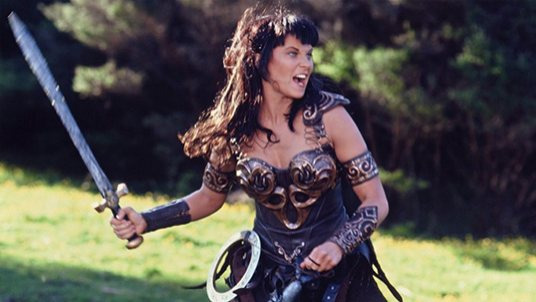
1. Xena (Xena: Warrior Princess) I got to meet Lucy in 2018, and it was basically the highlight of my life. Xena was such a HUGE influence on me as a kid, and I don’t think I ever got over the impact she made on me. Her bravery, her love for Gabrielle, her intelligence, she’s the whole package and spent almost every episode kicking dudes in the face, which is like, the dream. I think that she was very clearly a queer character also made a huge difference for me, because even though baby Frankie didn’t know it, she was gay as hell. Seeing the relationship between Xena and Gabrielle play out and that ‘love that dare not speak it’s name’ was kind of a revelation for me, even though I wouldn’t realize it for a while.

2. Martha Jones (Doctor Who)
I think there was something so special about Martha Jones that most people didn’t see (youknowwhy.gif). She was more than just that girl who was pining away for the Doctor. She saved the world at one point just because she was willing to put everything on the line, and in some small ways it was for him, but in larger ways it was for herself. In the end she walked away because she knew that she deserved better, and she was right. She was just in general such an awesome character, and I hope that I can be more like her one day.
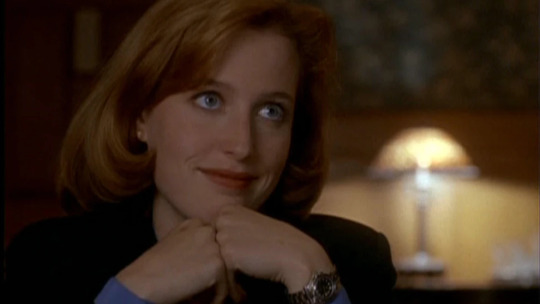
3. Dana Scully (The X-Files)
Scully was the skeptic, but also, weirdly the believer because she was pretty serious about her faith. I remember having so many feelings about Scully and not really being able to explain them (it was the queerness, Lil’ Frankie), but in general beyond just being gorgeous she was so smart, and so good at dealing with Mulder’s BS. She would take things in stride as well, and made the most of the circumstances that left her in a worse situation than before. She was a scientist first, and so when she was elbow deep in a carcass, giving everyone answers that they didn’t know they wanted, she was in her element. I know that people are aware of the Scully effect, and I think that it’s just a testament to how much of an impact this character had on popular culture. I just loved her resolve, and every time she had a terrific storyline, I cheered.

4. Captain Kathryn Janeway (Star Trek: Voyager)
I clearly have a thing for no nonsense red heads, so maybe there’s a type here, but also, Kathryn Janeway was an amazing character. I think if she’d been a man she would have gone down as one of the greatest Starfleet Captains of all time, but alas, sexism is a thing, and we’re in the 21st century, not the 25th. Janeway had the absolute worst situation that a captain could ask for, and she made it work somehow. In the end, she gave everything to make sure that her crew (both Maquis and Starfleet) could get home safely, and that’s what a good captain does. I first talked about this in 2007, so, yeah, you know that I mean it. Captain Janeway had to navigate a world without Starfleet, and in her own way manage to build a crew and keep a ship going through the most desperate of conditions, and I think she did an amazing job. (It’s also just a coincidence that my favorite episode is ‘Year of Hell’ where she gets to run around in a standard issue Starfleet tanktop and shoot people)

5. Santana Lopez (Glee)
If you follow my blog, it will come to no surprise to you that I flipping love Santana Lopez. Played by Naya Rivera, she’s one half of my Forever OTP: Brittana. And Santana on her own is a fantastic character. She comes out to her grandmother, and faces shame, and struggles with some life choices that she was once sure about. She goes from being this grade A butthole who’s dealing with her own problems, to caring about those people who are the closest to her, and in a way, finding her own family. It’s a really beautiful journey, and when it was given the time that it deserved on Glee, I think that the show was better for it. Of course, her being so talented didn’t hurt either.

6. Dr. Joan Watson (Elementary)
I’m the kind of her that will pretty much appreciate a genderbent anything. When I heard that a new show was coming out about Sherlock Holmes and they were changing Watson to a woman, I was pretty excited. When I learned that it would be the love of my life Lucy Liu, I was ecstatic! Watson is very much the chocolate to Sherlock’s peanut butter, but their relationship is so good and so real that it’s just the icing on the cake (mixing a lot of food metaphors, so bear with me). She’s a scientist (doctor/surgeon) like Scully, but she’s changed careers and now she works as a sober companion (at least at the beginning of the season). Of course, the reason that she and Sherlock get along so well is because Watson is smart. Super smart. Sometimes smarter than Sherlock, and he readily admits as such. She was her own woman and she made Watson into someone who was on par with Sherlock, and a force to be reckoned with in her own right. And, of course, they were best friends.
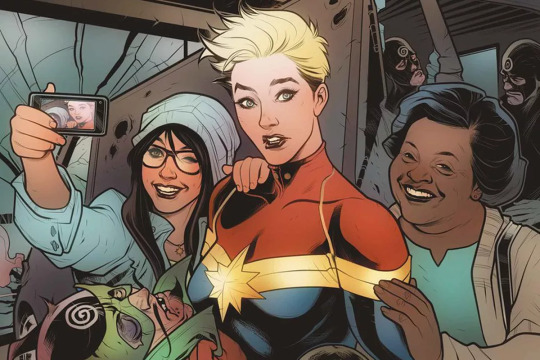
7. Carol Susan Jane Danvers (Captain Marvel)
I was a big fan of CM before the movie came out, so I’ll mostly talk about the comics, but Captain Marvel in every incarnation is a terrific character. I first read Civil War II with her and Tony Stark going at it, and I couldn’t help but appreciate the passion that she brought to the table. Carol Danvers is the kind of character who, right or wrong, just does what she’s going to do, and you know that her heart in the right place. In the comics, she has a relationship with Rhodey, and that makes for some interesting drama. She’s the kind of person who punches first, asks questions later, and it’s that kind of himbo energy that makes me love her. She goes all in, and god help you if you get in her way.
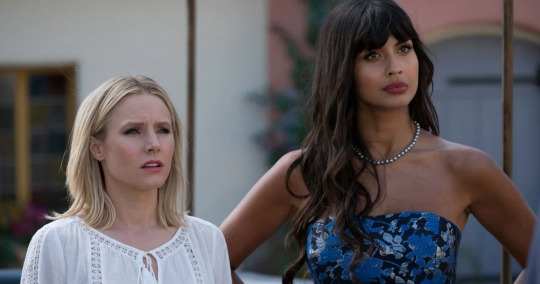
8. Eleanor Shellstrop and Tahani Al-Jamil (The Good Place) Is a twofer cheating? Probably. Do I care that much? Nah, son. For the record, I do ship Cheleanor, but I love these two together in every single imaginable way. They both have their own baggage, and come from less than ideal backgrounds (Eleanor generally, and Tahani because of her family life), but they have learned and grown so much over the last four seasons and I can’t wait to see how things turn out for them. They’re also such good friends, so I really appreciate their relationship with each other. Neither really had friends in their “real” lives. (Even though Tahani pretended to) The fact that they have each other, and really care for each other, just makes both of them so much better in my opinion. I was rewatching the first season and during the episode where they both confess their feelings to Chidi, Eleanor says that she’s going to make sure that they don’t become like to women feuding over a guy, and they proceed to spend a terrific day together. That’s female friendship right there! I love this show in general, it’s definitely my favorite on TV right now, and I’m so glad that it’s on!

9. Zoe Washburne (Firefly) I have shipped exactly three het ships in my entire life: Rick and Evie O’Connell, Eleanor and Chidi and Zoe and Wash. I dunno, it was something about their relationship that just moved me. She loved him, and she didn’t care who knew it, and they just had this terribly healthy relationship, and it was stupendous. Sans Wash, though, Zoe is an amazing character. She’s smart, she’s strong, she’s loyal, and she’s played by Gina Torres, who only seems to get more and more attractive as the years go on? Like, I’m not trying to be that person because Gina brings so much to to the table, she’s so talented and clearly intelligent and passionate, but she’s also super duper hot? Like, in the year of our lord 2020? It’s wild. She was also on the Black Lady Sketch Show and she was hilarious, so there’s that. She can do it all! Okay, but back to Zoe, I just love her character, and her relationship with the other folks on the ship. It was something awesome to see.
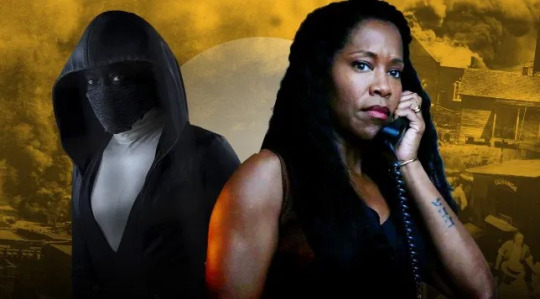
10. Sister Night/Angela Abar (Watchmen TV Series) This is kind of a new addition, but I hope that doesn’t make you think any less of this amazing character. Regina King knocked my socks off in the best way imaginable, and I’m just so enthralled and obsessed with this character, I don’t even know what to do with myself. She has such AGENCY and she’s a woman who makes her own decisions and is in charge of her whole life. Dr. Manhattan fell in love with her because despite everything she put everything on the line for him, and you’ve got to appreciate that amount of determination. Of course, I love that she spent most of the show kicking racists in the head, so you know, I’ve got a type, clearly.
Throwing out a special shout out to: Kelly and Yorkie (Black Mirror), Alex Danvers (Supergirl), Eve and Villanelle (Killing Eve), The Doctor/13 (Doctor Who), Lt. Uhura, and the thousands of other amazing, bad ass female characters that I didn’t mention.
-------------------------------
So, that’s it. To continue this I’d like to tag @leigh-kelly @chuckleshan @daborgh @battybookworm @lesbeauregarded @ambirrdy-brittana @yourstreetserenade @itcameuponamidnightqueer @vikingstad1 @stephanie-beatriz @skywalkerchick1138 @mayqueen517+ anyone who wants to do this!
#female characters#fandom#xena#martha jones#captain janeway#scully#angela abar#zoe washburne#eleanor shellstrop#tahani al jamil#captain marvel#joan watson#santana lopez#i just realized that most of these are from tv#which is pretty cool!
5 notes
·
View notes
Text
On this Thanksgiving, I’m going to give thanks for some of my favourite First Nations artists who continue to fight the good fight against colonialism
(that I have to research as part of my final exam anyway)
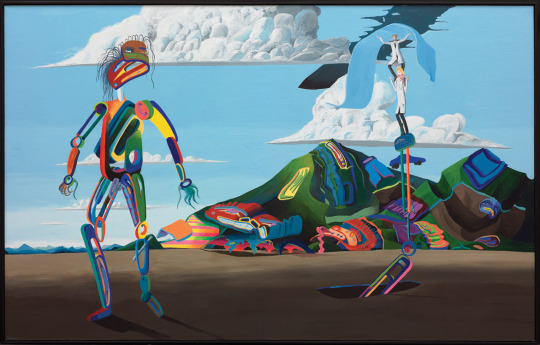

Lawrence Paul Yuxweluptun, Coast Salish and Okanogan, born 1957. Surrealist painter, history painter, and creator of the Manifesto of Ovoidism. Featured here are his paintings “Red Man Watching White Man Fix Hole In Sky” (1990), and “The Fish Farmers They Have Sea Lice”.*

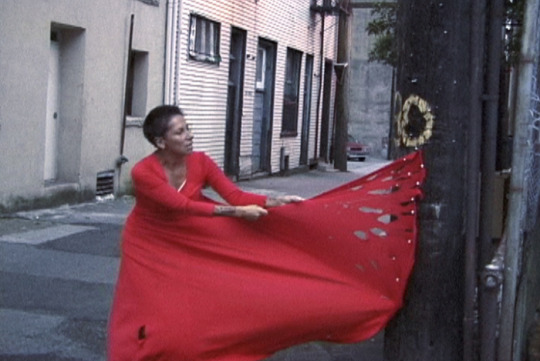
Rebecca Belmore, Anishnaabe, born 1960. Performance artist, sculptor, and activist. Pictured here are her works “Ayum-ee-aawach Oomama-mowan: Speaking to Their Mother” (1991) (a sculpture in response to the Oka Crisis in Quebec) and “Vigil” (2002) (a response to the missing and murdered Indigenous women in the downtown east side of Vancouver, BC).
youtube
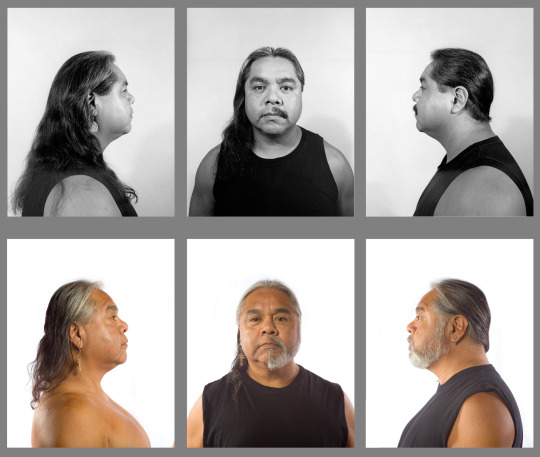
James Luna, Payómkawichum, Ipi, and Mexican-American (1920-2018). Photographer and performance artist. Featured above are his works “Take A Picture With A Real Indian” (2010) and “Half Indian/Half Mexican”. Here’s his memorial article.**

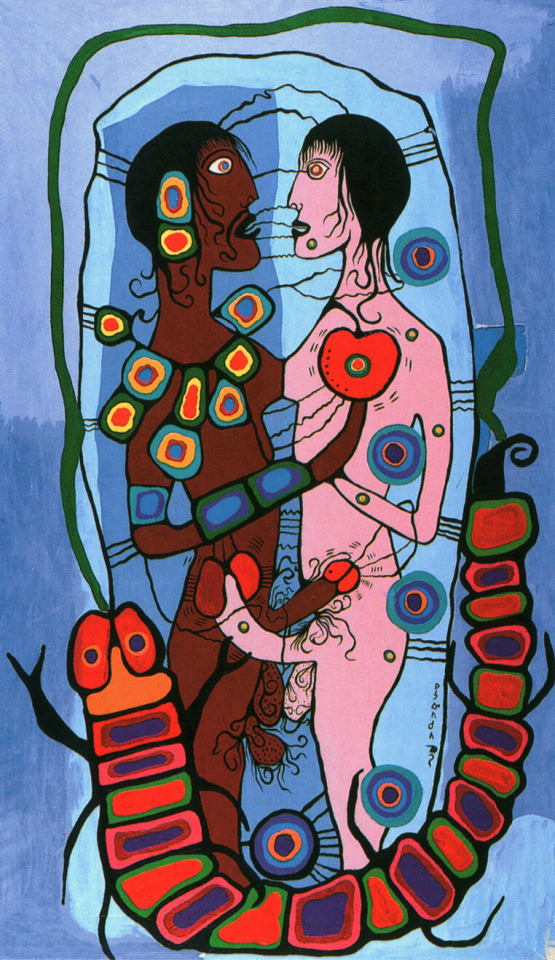
Norval Morrisseau, Anishnaabe, 1931-2007. Painter. Founder of the Woodland School of Canadian Painting and a member of the “Indian Group of Seven”. Pictured above are his famous “Thunderbird” print (1960) and “Indian Erotic Fantasy” (n.d.).


Bill Reid, Haida, (1920-1998). Hugely influential Canadian sculptor who had an enormous impact on the art world surrounding the work of First Nations artists. Pictured above is “The Spirit of Haida Gwaii” and “Raven and the First Men”.
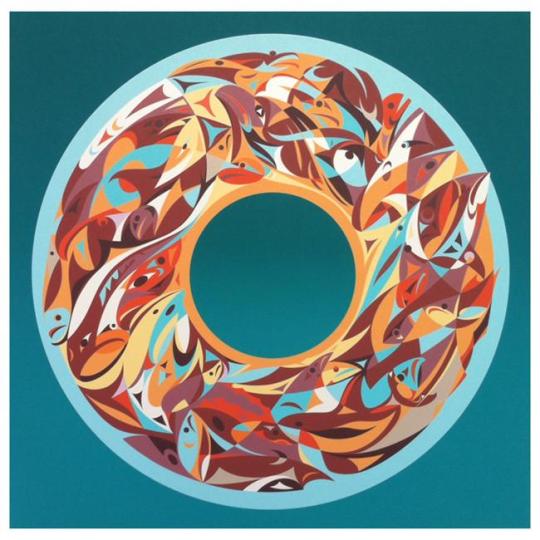

Susain Point, Musqueam Coast Salish, (born 1952). Printmaker. Pictured above are “Beyond the Edge” (2015) and “Transformation” (2005).


Edgar Heap of Birds, Southern Cheyenne, (born 1954). Mixed media. Pictured above are two examples of his work from two of his series “Native Hosts” and “Genocide and Democracy: Secrets of Life and Death”.
And now for some writers!
I highly encourage you to read some of these books if you can.
The Absolutely True Diary of a Part Time Indian by Sherman Alexie. You can find a free PDF here, or buy a copy here!
Bestselling author Sherman Alexie tells the story of Junior, a budding cartoonist growing up on the Spokane Indian Reservation. Determined to take his future into his own hands, Junior leaves his troubled school on the rez to attend an all-white farm town high school where the only other Indian is the school mascot.
Monkey Beach by Eden Robinson*. You can buy it here!
As she races along Canada’s Douglas Channel in her speedboat—heading toward the place where her younger brother Jimmy, presumed drowned, was last seen—twenty-year-old Lisamarie Hill recalls her younger days. A volatile and precocious Native girl growing up in Kitamaat, the Haisla Indian reservation located five hundred miles north of Vancouver, Lisa came of age standing with her feet firmly planted in two different worlds: the spiritual realm of the Haisla and the sobering “real” world with its dangerous temptations of violence, drugs, and despair. From her beloved grandmother, Ma-ma-oo, she learned of tradition and magic; from her adored, Elvis-loving uncle Mick, a Native rights activist on a perilous course, she learned to see clearly, to speak her mind, and never to bow down. But the tragedies that have scarred her life and ultimately led her to these frigid waters cannot destroy her indomitable spirit, even though the ghosts that speak to her in the night warn her that the worst may be yet to come.
Not up for something that old? How about Robinson’s new book, Son of a Trickster that came out this year?
Everyone knows a guy like Jared: the burnout kid in high school who sells weed cookies and has a scary mom who's often wasted and wielding some kind of weapon.
Jared can't count on his mom to stay sober and stick around to take care of him. He can't rely on his dad to pay the bills and support his new wife and step-daughter. Jared is only sixteen but feels like he is the one who must stabilize his family's life, even look out for his elderly neighbours. But he struggles to keep everything afloat...and sometimes he blacks out. And he puzzles over why his maternal grandmother has never liked him, why she says he's the son of a trickster, that he isn't human. Mind you, ravens speak to him--even when he's not stoned.
You think you know Jared, but you don't.
Something a bit more historical is Richard Wagamese’s Indian Horse.
Saul Indian Horse has hit bottom. His last binge almost killed him, and now he’s a reluctant resident in a treatment centre for alcoholics, surrounded by people he’s sure will never understand him. But Saul wants peace, and he grudgingly comes to see that he’ll find it only through telling his story. With him, readers embark on a journey back through the life he’s led as a northern Ojibway, with all its joys and sorrows.
Kiss of the Fur Queen by Thomson Highway is somewhat convoluted, but a thoroughly enjoyable read with a touch of queerness inside.
Born into a magical Cree world in snowy northern Manitoba, Champion and Ooneemeetoo Okimasis are all too soon torn from their family and thrust into the hostile world of a Catholic residential school. Their language is forbidden, their names are changed to Jeremiah and Gabriel, and both boys are abused by priests.
As young men, estranged from their own people and alienated from the culture imposed upon them, the Okimasis brothers fight to survive. Wherever they go, the Fur Queen--a wily, shape-shifting trickster--watches over them with a protective eye. For Jeremiah and Gabriel are destined to be artists. Through music and dance they soar.
Three Day Road by Joseph Boyden is another excellent, tragically dark tale.
It is 1919, and Niska, the last Oji-Cree woman to live off the land, has received word that one of the two boys she saw off to the Great War has returned. Xavier Bird, her sole living relation, is gravely wounded and addicted to morphine. As Niska slowly paddles her canoe on the three-day journey to bring Xavier home, travelling through the stark but stunning landscape of Northern Ontario, their respective stories emerge—stories of Niska’s life among her kin and of Xavier’s horrifying experiences in the killing fields of Ypres and the Somme.
Not in a reading mood? How about some of my favourite films!
Indian Horse is now a movie.
Smoke Signals shaped my childhood.
Powwow Highway is amazing.
Reel Injun gets to the core of the history of Indigenous Cinema.
And Atanarjuat is arguably one of “the most indigenous films ever made”.
Happy Thanksgiving, lovelies! Support your local First Nations artists!
*I have met Lawrence and Eden. They are both very nice people. :)
**Huh, turns out my professor in the class I’m currently taking wrote this article.
(disclaimer: I am of settler descent, I am not Indigenous. I’ve grown up in Indigenous territories with lots of exposure to First Nations cultures, but I can’t claim that title for myself. I merely hope to uplift some First Nations artists and celebrate them, never to speak of behalf of Indigenous cultures <3)
#runaway posts#art history#art#first nations#culture#indigenous#colonial#thanksgiving#drug ment#alcohol
31 notes
·
View notes
Text
The Mysterious Benedict Society: Bringing the Middle Grade Mystery Series to TV
https://ift.tt/3cZFTyo
This article contains spoilers for the first two episodes of The Mysterious Benedict Society plus teasers for future episodes. There are no book spoilers beyond the plots featured in the first two episodes.
The Mysterious Benedict Society is not only Disney+’s latest television series, it’s one of the streamer’s noteworthy original TV projects outside the massive Marvel and Star Wars franchises… But that doesn’t mean it doesn’t have a source material. The series is based on the bestselling middle grade book series by Trenton Lee Stewart. Stewart first published The Mysterious Benedict Society in 2007, which means the original readers are now adults and even parents themselves. (I myself discovered the series while working in summer camp and after school a year or two after publication.) The series was in development hell for over a decade before Phil Hay and Matt Manfredi joined the project in 2017. Den of Geek talked to showrunners Hay and Manfredi, who previously worked on AEon Flux and the Ride Along movie series together, to discuss the behind the scenes of translating this middle grade mystery adventure to the silver streaming screen.
“We were aware of the book when we were brought them, and read the first one and just fell in love,” Manfredi tells Den of Geek. The most important example of this love comes through in novel series author Stewart signing on as consulting producer on the series. Several other middle grade books from the mid 2000’s, most notably the Percy Jackson movies, were reduced to in-name-only movie adaptations that butchered the essence of the stories, due to authors having no input on the adaptation.
“We talked to him very early in the adaptation process, got to know him,” Hay says. ”Then as the show went along, he read all the scripts, he saw the cuts…whenever he had an idea, it obviously rang a lot of bells for us… and, it was just very important to us that he be pleased and like it.”
The series follows Mr. Benedict (Tony Hale), a scientist living in an alternate universe who is very concerned that the world’s increased anxiety, called The Emergency, is not, in fact, the organic result of social politics, but rather is being orchestrated by someone outside the government. There are subliminal messages about The Emergency broadcast across the media and adults have accepted these messages as truth. Kids are naturally more curious and at times confrontational about accepting authority and fate. Although Mr. Benedict has two extremely capable assistants in Rhonda Kazembe (MaameYaa Boafo) and Number 2 (Kristen Schaal); he needs children to infiltrate the educational institute from which the messages about The Emergency originate. After a series of rigorous tests, he assembles a team of four extremely smart orphans to infiltrate and to find the person responsible. Renard “Reynie” Muldoon (Mystic Inscho) is a master puzzle solver, George “Sticky” Washington (Seth Carr) is a trivia champion, Kate Weatherall (Emmy DeOlivera) is a budding engineer and meteorologist, and Constance Contraire (Marta Kessler) is a social rebel who needs a cause to properly apply her truth-seeking instincts. The mission is going to test not only their skills but also their stamina to resist the subliminal messaging. The title of the series comes from the team name the children give themselves.
Although the adventure elements are clearly targeted towards today’s preteens, the political undertones of the story are definitely going to be the element that appeals to adults who haven’t read the novel series. “The book feels prescient,” Hay says. “I double-checked the copyright page when I was reading it because it just seemed that the themes were so resonant and relevant to today.” This theme adds depth and immediacy to the children’s mission. Adults will immediately recognize current politics in this alternate universe where the language of The Emergency is the language of misinformation.
Kids are also affected by the political situation around them and this renders the plot of The Mysterious Benedict Society relatable. “We have kids thinking of the way they’ve experienced the recent past as a relentless tide of anxiety, and how do we get to the bottom of that and how do we find ways to contend with it?” Hay says. “I think the message of the show in a way, is through getting to the truth and through finding the truth and then also through addressing others with care and with empathy and with kindness, and those things coalesced to be the bedrock of what we think the show is about.” Although some may feel uneasy about a dystopian alternate universe as escapist entertainment especially for children, there is hope and a solution embedded into the mission. The audience naturally roots for Mr. Benedict and his team triumph over evil.
Bringing the alternate universe of Stonetown and its environs to life from Stewart’s imagination presented several challenges for Hay and Manfredi. Shooting eight, hour-long episodes during the pandemic added considerable complexity to the project. “We had such an incredible team in Vancouver led by Grace Gilroy, our line producer, and the dedication of the cast and crew, which was extraordinary to keep each other safe and healthy and follow the protocols to the T all of which happened,” Hay says. “Every day when you’re shooting in that condition is seen as a gift, and you are just really reliant on everybody, every single member of the cast and crew to be vigilant and they were, and that’s something that is extremely inspiring.”
Another obstacle was reconciling viewers’ imaginations and the illustrations in the novels with the screen. “I imagined [the novel as] a bit more Gothic or Victorian, and partially just because it worked with the themes for us and partially because we thought a lot of other things have explored that visual landscape,” Hay says. “[We] settled on this idea that this could be told in a sixties, European modernist kind of vibe, where things are very organized and formal.”
That mention of other things exploring “a Victorian landscape” is an illusion to Netflix’s series adaptation of A Series of Unfortunate Events. Most adult viewers new to the series will likely make that comparison, since both series revolve around orphans fighting eccentric adult villains in a dystopian alternate universe. However, the first two episodes of The Mysterious Benedict Society make it clear that the main characters are fighting evil on the societal level versus an inheritance fraud conspiracy one.
Read more
TV
A Series Of Unfortunate Events Season 3 Review: The Best One Yet
By Gabriel Bergmoser
Culture
A Series Of Unfortunate Events Review (Spoiler-Free)
By Gabriel Bergmoser
Ironically, Tony Hale directly links the two series. He played Jerome Squalor in A Series of Unfortunate Events, and ended up being the top choice to lead The Mysterious Benedict Society. “We were such fans of Tony, and every role he’s done becomes an iconic thing,” Manfredi says. “He’s just so funny, and he had such a soulfulness to him and intelligence and compassion to him that he just kind of ticked all the boxes.” Hay added, “In the book, the character is reasonably a bit older. It’s more of a practical grandfatherly character than a fatherly character.” Mr. Benedict in the series is still eccentric, epilectic and tireless in his quest to right the wrongs in his world. At the end of Episode 2, the audience realizes Hale is pulling double duty in the series. He plays the sketchy institute headmaster and series villain L.P. Curtain. “We always saw it as a dual role, and that’s why somebody who is as versatile as Tony was, was so appealing to us,” Manfredi says. Novel readers know Mr. Benedict and Mr. Curtain are twin brothers. Hale makes a strong impression as Mr. Benedict in his introduction, and the challenge for the kids to figure out Mr. Curtain begins.
Along with the set design and Catherine Adair’s (recently known for costuming The Man In The High Castle and Fate: The Winx Saga) vintage kitschy costumes, casting is also a key part of distinguishing The Mysterious Benedict Society from other series. Reynie, Sticky, Kate and Constance in the books were characters not only defined by their intelligence but also for their innate sense of the truth in an uncertain world. “When we were casting with the kids, it was important to us to find old souls.” Manfredi said.
One of the most appealing factors to me as a reader over a decade ago was how Stewart’s vision of Stonetown had diverse representation built into the story. On the other hand, the adaptation of A Series of Unfortunate Events used raceblind casting to offset the white main characters Lemony Snicket (Daniel Handler) originally described. Episode 1 of The Mysterious Benedict Society brings this to the screen by introducing Reynie as a Latine boy learning Tamil from his teacher Miss Perumal (Gia Sandhu). “We were very, throughout the process really, really focused on diversity and inclusion in the cast, Hay says. “We were really hoping to find a diverse Reynie and Sticky … We wanted Sticky to be an African-American actor.” Although racism in the world of Stonetown works slightly differently than in ours, neither character is isolated from others who look like them.
One of the kids had an unintentional shift in their heritage. “In the book, Constance Contraire is not Russian, but when we saw Marta’s audition, she illuminated parts of the character for us, and we all of a sudden just couldn’t see her any other way,” Manfredi says. Fans should be reassured despite this accent shift Constance in the first two episodes is still the obstinate, headstrong, and full of haterade little girl readers know and love.
This vision was also carried out in the casting of the adult characters in the series. “Rhonda Kazembe is such a huge part of the book and of the show, even a bigger part of the show than the book,” Hay says. “To find MaameYaa was such a gift, but yeah, that was really on top of our mind, and then throughout the rest of the show, again, from the perspective of wanting the show to look like the world and seeing it as an opportunity to really create a world that does reflect the world around us.” In order to fulfill this objective, a shift in the storytelling was required. In the novel, once the kids arrive at the mysterious island institute, all of the action revolves around the children. “It was important to us to keep the adults involved, to create a kind of parallel storyline to have that back and forth with the kids and the adults and learn from each other along the way, and solve the mystery together.” Manfredi says.
What can viewers expect from the remaining six episodes? Stopping Mr. Curtain’s evil propaganda campaign is the conclusion the series is leading to. “We hope that over the course of the season, there’s going to be a lot of twists and turns and hopefully it’ll be a lot of fun,” Manfredi says. “[Hopefully] these themes of empathy and the importance of truth and being able to look at a problem in many different ways…[will] resonate, and hopefully they have fun with it.”
cnx.cmd.push(function() { cnx({ playerId: "106e33c0-3911-473c-b599-b1426db57530", }).render("0270c398a82f44f49c23c16122516796"); });
There are three books total in the series, plus a prequel about Mr. Benedict, but the fate of the series is out of the hands of Hay and Manfredi. For those who want to see the series continue, word of mouth online and offline will be key to get middle schoolers to watch and for adults to sign onto a nostalgia trip.
The first two episodes of The Mysterious Benedict Society will be available on Disney + on June 25th followed by one new episode every Friday.
The post The Mysterious Benedict Society: Bringing the Middle Grade Mystery Series to TV appeared first on Den of Geek.
from Den of Geek https://ift.tt/3d2YbP4
0 notes
Text
Movie review: Perfect Holiday not so perfect
The Perfect Holiday is seasonably pablum partially redeemed by a smart (if wasted) cast and at least one unusual holiday bit. Directed by co-written by Lance (The Cookout) Rivera, the film mostly flounders through contrived meet-cute scenes and some “what were they thinking” scenes (such as one involving a 300-pound “elf” trying to put on a fat suit). The romantic/family comedy also demands a major suspension of disbelief in having the lovely Gabrielle Union portraying a woman (Nancy) who wishes a nice man would pay her a compliment.
Union plays the ex-wife of an obnoxious rapper, J. Jizzy (Charlie Murphy—Eddie’s older brother—who gets the most laughs in the film). The divorcee’s kid helps steer her to a handsome department-store Santa named Benjamin (Morris Chestnut) who also happens to be a songwriter. What’s more, he’s pitching his tunes to J. Jizzy. Much of the film involves Benjamin trying to keep Nancy and Jizzy from finding out about his romantic and business (respectively) arrangements with each of them. The problem is that there’s no logical reason why he should care—or lie to Nancy about his “true” vocation.
Much of the movie involves Nancy discussing life with her gals pals (Jill Marie Jones and Rachel True), Benjamin chumming around with his best bud, Jamal (Faizon Love); and J-Jizzy interacting with his spacey manager, Delicious (Katt Williams). This offers scenes of soul searching, self revelations and some strained comedy—but little of it is interesting.
There’s also little reason for Queen Latifah and Terrence Howard (who seems to have appeared in 95 percent of the films released in 2007) playing competing angels (or perhaps that’s angel vs. devil). Latifah breezes through her role, but Howard just seems embarrassed to be here (and who can blame him?).
One of the brightest parts of The Perfect Holiday is one of its most understated: a department store hires a black Santa and black elf helper, kids of all colors line up to visit Ol’ Saint Nick and no one questions it. It’s a sweet, hopeful set-up that offers a counterpoint to the otherwise pedestrian, plodding antics of The Perfect Holiday.
The Perfect Holiday is rated PG for brief language and some suggestive humor. Running time: 96 minutes. Macsimum rating: 4 out of 10. You can check out the film’s trailers on the QuickTime movie trailer site.
1 note
·
View note
Text
Because I Said So (USA, 2007)

Predictions: We kind of knew that Diane Keaton was Mandy Moore’s mom, so...maybe Diane Keaton says, “Because I said so” a lot???? Does she disapprove of some guy Mandy Moore is seeing? Is she an insufferable know-it-all? Hard to say.
Plot: We were definitely not wrong. It seems like “because I said so” is Diane Keaton’s catchphrase, and she does in fact disapprove of Mandy Moore’s life choices. She’s also really crazily preoccupied with the fact that Mandy Moore can’t lock down a man, largely (it seems) because of her own deep-seated insecurities (she wasn’t able to hang on to Dad and thus as a single mom raised three daughters and is now all alone). Apparently Diane Keaton can imagine nothing worse than Mandy Moore being single. Seems a bit much, but okay.
Anyway, Diane Keaton’s solution is to write a personal ad in order to vet a date for Mandy Moore. Yup, totally fine and normal thing for a mother to do. Most of the men who answer this ad are, of course, terrible, but she also happens upon Gabriel Macht, a fedora-wearing guitarist, who seems like he’s open to dating Mandy Moore. But Diane Keaton is like, “NOPE. CAN’T HAVE YOU. YOU’RE NOT A SERIOUS PROSPECT,” and ignores him in favor of Tom Everett Scott, an architect. Unbeknownst to Diane Keaton, though, Gabriel Macht sees Mandy Moore’s business card and decides to track her down himself. Yup, yup. Also super fine and normal. But whatever; it’s not like Diane Keaton notices, since she’s so busy masterminding Mandy Moore’s romance with Tom Everett Scott.
Mandy Moore ends up meeting and dating both men. Gabriel Macht has a kid and is, like, really obsessed with fedoras and terrible vests and lives by the Venice canals because somehow he can afford that???? Tom Everett Scott is an obnoxious snob who wants four kids, but he’s all fancy and shit, so it seems Mandy Moore’s kind of into that, too. Sidebar: at some point Diane Keaton meets Gabriel Macht’s dad and is pretty into him.
Of course, this man-juggling eventually bites Mandy Moore in the ass, because for some reason she’s never had a conversation with either guy about exclusivity???? Gabriel Macht catches her leaving a date with Tom Everett Scott and is like, “I DON’T EVEN KNOW YOU ANYMORE,” and is a tiny bit slut-shame-y (auuuugh!!!! NO) -- though, it’s true, she should have told him. BUT THEN, she finds out that Tom Everett Scott was actually her mom’s plot all along and storms out. Yeah, okay. That’s understandable.
In the end, Diane Keaton apologizes and encourages Mandy Moore to go after the guy she really wants, which apparently is fedora-wearing Gabriel Macht. Diane Keaton ends up marrying Gabriel Macht’s dad (weird), and everyone lives happily (and slightly incestuously) ever after.
Best Scene: Wellllll, this movie was a little thin on good scenes...or lines...or characters or plot. Probably the best scene is when Mandy Moore breaks a plate in Gabriel Macht’s kitchen and kind of loses it, and Gabriel Macht, kindly and reasonably, is like, “It’s okay. We all have off days. Chill.” Even though Mandy Moore is your typical ridiculously klutzy romcom heroine (not just on her off days, mind you), he seems to accept her.
Worst Scene: At one point Diane Keaton has laryngitis and, incapable of taking care of herself (apparently), has a sleepover at Mandy Moore’s, where she asks her daughter what an orgasm feels like. Mandy Moore spends at least two to three minutes trying to describe it, and it’s...terrible. We have never been so uncomfortable in our own home/s.
Best Line: … *long silence; crickets*
Worst Line: “I love that when I breathe you in you smell like cake batter. And I love that you have this insane way of talking in circles that makes perfect sense.” — Gabriel Macht to Mandy Moore, at the end of the film. But honestly, this was only marginally worse than every other line. This movie was not good.
Highlights of the Watching Experience: This movie was so bad that we were able to write the plot summary while watching it. So much time saved! But really, spare yourself. Never see this.
How Many POC in the Film: Not a one that wasn’t racistly portrayed, from the Korean women working at the spa to the Indian guy who answers Diane Keaton’s ad. Yes, this happened to our eyeballs.
Alternate Scenes: Hmmmm. Well, Lauren Graham and Piper Perabo play Mandy Moore’s sisters, and they seem perfectly pleasant and normal. Lauren Graham was very charming as Lauren Graham, one of our favorite Lauren Graham roles. So, if you took out Diane Keaton and the men, and this was just a feel-good movie about three sisters -- Lauren Graham, Piper Perabo, and Mandy Moore -- we probably would have enjoyed it.
Was the Poster Better or Worse than the Film: Better. The poster very accurately represents the film and thus serves the practical purpose of warning viewers away (while the film itself serves no purpose at all). We could have seen this poster and said to ourselves, “Better not see this movie. It doesn’t look very good,” and so we would have saved ourselves. Alas, we have this blog, so, in spite of the poster’s warning... Sigh. How we suffer for our art.
Score: 3 out of 10 excessively-close-family smooches.
Ranking: 91, out of the 107 movies we’ve seen so far. This was worse than Jersey Girl. Let that sink in.
15 notes
·
View notes
Text
k.athy b.ates was such a good casting choice for hester. we deserved more than two lines from her.
2 notes
·
View notes
Text
Claire Denis’ ’35 Shots of Rum’ “I feel like…I have wings…”
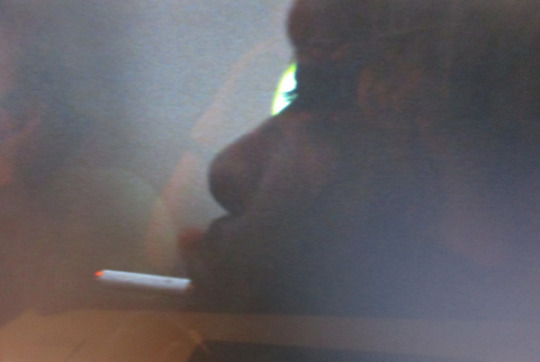
© 2019 by James Clark
These days, an old black and white film about God will find few takers. However, there is a still-practicing filmmaker, namely, Claire Denis, who pulls out all the stops to revisit such a vehicle. Is she a nun? Nope. Is she a God-fearing militant in favor of aid to the distressed? Nope. Is she a social scientist, tracking religious consequences through the ages? No, no, no. What Denis’ excitement pertains to, is the work of that mostly shunned movie, called, The Seventh Seal (1957), created by notable-no-longer filmmaker, Ingmar Bergman (1918-2007), whose output engages the intrinsic disaster of piety and smarts. (The word, “intrinsic,” is crucial here. And as such, her perspective is problematic, not formulaic.) In addition to piety and smarts, that film spotlights a young couple of itinerant circus performers in the 12th century, the husband, Jof, agog with the possibility that their baby boy could become a dazzling acrobat, or a juggler, pulling off an “impossible” trick, the kind of trick only an oracle would imagine.
Intrinsic in the travelling folks’ itinerary, is the sentence of being left out of the lives who, if not making the world go round, making the world theirs. 35 Shots of Rum (2008) contemplates the hopes of Jof, almost a millennium shot forward. As such, our film today carries the special bonus of catching up to, once again, the bittersweet world of Jacques Demy and the musical muse of Demy’s soulmate, Michel Legrand (setting out the latter master’s magical transcendence by way of those deft swallows, the Tindersticks).
Diminutive Jof comes a cropper with the salt of the earth in a medieval beer hall, and, by way of putting a less embarrassing story in the mix, he tells a gathering at his caravan that he “roared like a lion” against the mob. Our protagonist today, Lionel, a Paris commuter train driver (far from Jof’s open road), is an African immigrant-widower who dotes on his adult daughter, Josephine, still living with him. The action here is pensive in a puzzling way. Whereas Jof and Marie are on the hook to circumvent various substantial evils (the plague, for instance), Lionel and Jo seem to lead a rather uneventful, mundane existence. Their reticence to speak (a less extreme strategy of the vow to silence, in Bergman’s, Persona [1966]), counting upon face and body language, becomes a form of poetry you could study for years.
Such a peculiar, elusive narrative presents a daunting task of identifying and structuring the artistry being given to us. One readily manageable gift, however, in this connection, is the opening scene and its riches of rail lines and bustle and a high-pitched, low-textured accordion motif, keening for something misplaced and yet with an abundance of lift, rather like the music of a carousel. The first visual incident involves a set of shining rail tracks plunging forward from the driver’s smudged window. Soon we’re presented with multiplicity of tracks near a railroad station, resolving to one line describing a gentle curve as against the standard fast forward, a departure redolent of both poetry and prose. Even more palpable, however, is the jumble of wiring (a sort of Black Forest or snowstorm) and its masts maintaining electrical power and its dynamics, along with mechanical devices being a force of stasis. Constituting a form of synthesis with those visuals, there is the musical motif, filling out the progressions in such a way that we are transformed as part of the doing of a sorcerer’s apprentice. That formidable protagonist, Lionel, comes into view in close-up profile at twilight with his shift nearly over. Lighting a cigarette and gazing at a more substantial and impressive long-distance train passing by, the set of his face is far from easy. Tindersticks add a flute component, lightening the load somewhat. We see the back of the last coach, touching the black void with two sharp red stoplights near the wheels, and a more diffuse green field of action near the structure’s top. An elicitation to accentuate the positive.

Then we see Josephine (the play of her two forms of name being a bit like the red/ green just mentioned) patient in a Metro car squashed like livestock. She stops at a kitchen store to consider a presser cooker/ rice preparer; and, presto, Lionel comes home to the flat with one, scarlet and shiny, making a statement. What with her doing the laundry and his carefully undressing and having a shower before dinner from that new appliance—she smiling on hearing him come in, and he pleased to be the bearer of good tidings—all the connection involves their silence within a sanctuary of their own perceptual making. This low-key activity allows us to salute the savvy with which they have designed their little nest—choosing paneling in very effective blacks and greys, with subtle yellow floor tiles, and with uncluttered spaces. When they’re close enough for a welcome little kiss, she tells him, “You smell of cigarettes,” a case of maintaining a pristine society. (Another of the audacious compositional touches is the virtual disappearance of Caucasians in the City of Light—Josephine’s subway, for instance, entirely filled with blacks—as if this enclave represents the best hope of clear thinking.) Seated quietly, they eat with gusto. She puts on some lively music—far less lively than what we heard along the tracks—and Lionel picks up two apples for their continued health. Sanguine, for sure; but not successfully addressing those minutes, probably frequent, in the dark engine.
Upping the ante, the only black in sight not serene, namely, Rene, an old friend of Lionel, has come to his retirement day at the commuter system. Lionel watches the man of the hour about to clean out his locker, and he is apprehensive that his friend has dangerously lost the company grip. (At his suicide, our protagonist being confronted with the horror of Rene having chosen a place on the rails where the calm one would encounter him, the latter holds a difficult silence, culminating in, “Fuck, Rene!” [you’ve overreached].) Certainly, our careful one, would never place on his locker wall a photo of a pretty sharp acrobat, spinning many plates by way of a multiplicity of long sticks. To ponder such sensuous acuity is to be on the hook to see and feel things in a very different light. Lionel, on that special, presumably happy day, comes upon that aficionado as he trembles. And being a rock of some endurance, urges, “You can’t fall apart now. Not in front of everyone…” On to the retirement party, and Rene can’t manage a smile. From the girls, there is a beautifully designed, rather rakish, leather jacket. From the “brothers,” a scepter (ravishing in its mosaic details), the likes of which a jungle king would have close-by when presiding. Still glum, Rene manages a brief speech: “My friends, thank you for being here. I’ve waited so long for this. It’s a deliverance, you know. [His troubled manner has all of them on edge.] Tonight I feel like… I have wings…” On the Metro, with Lionel, his scepter wildly incongruous, he tells his friend, “Surrendering… Surrendering to this condition, is what’s so hard. I’d liked to have died young. But I’m at the age I’m at. And healthy as an ox. I’ll die at 100 at this rate… I don’t have this life in me. The subway and all that. It hit me unarmed and unprepared…” A few days later, they meet coincidentally in a bar. Lionel asks, “Got any plans?”/ “Tons,” Rene ironically replies. (Another gift, during the festivities where the lucky man spends most of the time with head bowed, is an iPod. Someone tells him, “All your music at your fingertips!” Music, again, but bulk; and Rene, the acrobat manqué, feels the pain without a plan to beat it. Lionel had for years been staging special events, dear to his heart, in the form of a drinking binge of 35 shots of rum in quick succession—his sense, for what it’s worth, of regal acrobatics. “Down the hatch,” a woman in the company [all black, of course] is cheered on. She ends her run at 16. The natural follow-up would be for Lionel to run a row of slam-dunks. But, to the surprise of all, he says, “Not tonight…” The vision of Rene’s horror has induced that current of self-criticism in our protagonist, rarely elicited; and soon it’s back to the tune of, “Fuck, Rene!” Oodles of charm, a go-to friend, to many. But.)
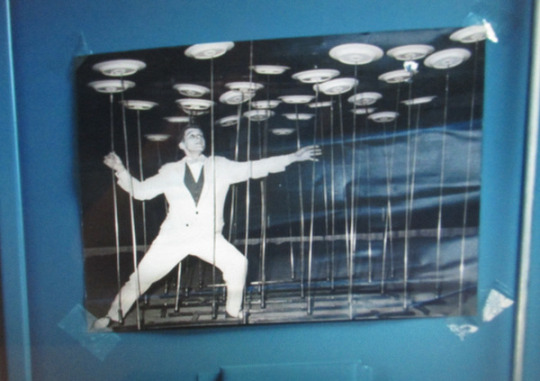
Jo, within the aura of Marie (a 12th century pragmatist), is enrolled in a college program of Economics, where she can practice utopian possibilities. The first sustained action in the world at large where we see her is to go jogging with a young mulatto man, Noe, who occupies the penthouse of their building; and joins Rene in distraction—not due to lack of understanding but lack of devouring. (That would introduce, though, the third member of Jof’s troupe, namely, Scat, who sleeps in a hammock near the ceiling of their caravan, and sleeps with as many women as he can.) They’re in cool apparel as they cruise along the industrial service road where their building stands. She begins to outpace him, and, true to form, he jumps into the Seine (far from the Seine of tourists and billionaires). “You’re crazy!” she laughs, when he regains the service road and the upper hand. (The little acrobatic, of the jog which suits her, being eclipsed by jagged face-saving and latent hostility.)
While Josephine wends her way to oblivion, there is a woman, Gabrielle, the unofficial manager of the easily managed centre, who shows to us, if not the virtues of wide variety of mood, their capacity to put into play juggling initiatives, come what may. One thing she does have up her sleeve, however operative, is the tangled history of films about taxi drivers (she being one), particularly, Jim Jarmusch’s film, Night on Earth (1991) and Abbas Kiarostami’s Ten (2002). She begins her tenure on the pavement with the complaint, “This is not my day…” A young dude, needing to move only a few blocks, counsels her to practice “flexibility;” but, in fact she’s already on the case. She maintains that she knows very well how fortunate she is, in finding every day to be unique. And, “No boss breathing down my neck.” In addition to her being a queen of the road, she’s frequently sitting in the dark, on her balcony or even in the stairwells of her home. Jo, rather obtuse for a closet mystic, teases her that she’s still carrying a torch for Lionel, who lived with her for some time before and after Jo’s German mother died, necessitating the young girl to come to Paris and her bemusing father. Despite the misalliance, all the players in this relationship have generally found ways to pleasurably intermingle. But the ways of volatile Gabrielle are not the ways of muted Lionel and Josephine. She also visits that bar where Rene needs the alcohol, and gives him a sunny smile (during the interregnum of Lionel’s patriarchy Rene would have been a frequent guest). After a quick espresso, she’s out the door to get back to work. And from the suicidal one’s perspective, and its remarkably dirty windows, she’s been transformed from incandescence to a blizzard of grey deadness. Such a fate dogs her to the end, a veritable sentence of solitary confinement. But it is her resilience, notwithstanding (like the taxi/Mom in Ten), which matters. (A “Fuck, Rene!” [and all the other cripples]; but in being disappointed for him and the rest, not pissed off that a lame clique had been abandoned.) She undertakes posting a thankless note about the by-law there, about someone leaving a bike in the hall. (Noe trips over it in a dark passage; and all he does is yell, “Shit!”) More thankless care comprises how often she invites Josephine to her suite and is given excuses that her studies come first. The four of them are excited to have tickets for a popular band. Off they go in Gabrielle’s car in a rainstorm—she, knowing Lionel only too well, asks, “Got your wallet?”—and the car breaks down (Gabrielle, as so often, no doubt, succumbs to, “I can’t believe this!) due to transmission problems. The concert never happens for them, how could it? But they’re within walking distance to a Jamaican restaurant they know, insisting, “We didn’t feel like going home like this.” (Remarkably, though, the place had already closed; but, in the current of the fantasy easiness here, the woman-proprietor welcomes them, and happily prepares suppers on her own. On the other hand, that generosity and sanguinity is something else.) The sound system comes to life, and Lionel and Gabrielle enjoy dancing together. Jo smiles at this, and soon she and Noe are the night’s special event, the passion of their embrace becoming a concern for her dad and a reflection for Gabrielle. The food arrives, and the host’s black and white dress is like a bit of outer space, a bit of a silent concert. Noe, while dancing with Jo, exclaims, “You’re something else!” He got the wrong girl. (During the inevitable wedding, Jo tells Gabrielle, “You’re not going to cry?” When the latter tries to help with the bride’s outfit, Lionel tells her, “Jo can do it herself.” We last see her sitting alone in a shadowy stairwell.)
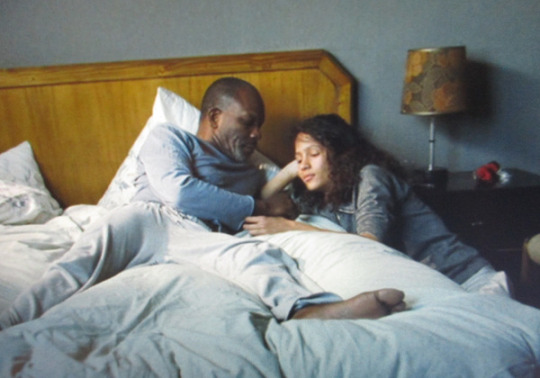
The sequel of that calypso meal finds three of the four at Noe’s apartment. His cat has died, and he disposes of it with not a moment of care. Dumping the body into a garbage bag, he brags, “No frills, he’s dead and gone for.” This finds Josephine covering her nose and mouth, and saying nothing. Gabrielle’s asking for an aspirin at least reflects being distraught. (Here the axiom, stemming from Jarmusch, of abusing a pet, means the abuser has metaphorically become roadkill.) With this he announces his interest in moving to Gabon (“pays well”); and Jo goes through the motions of dissolving what was supposed to be elevated performance. Wouldn’t you know he’d couch his departure with, “Now that my cat’s dead, I’ll like it” [the offer]—more fake acrobatics. But this shake-up involves depths and shallows, to savor, racing back to the lyrical and ambiguous curve of the tracks in the first scene.
Jo protests, “You’ll ditch us and go away?”/ “Why not?” the TV poker gamer bluffs. “You always tell me how it’s ugly and old here” [a list of her surprising immaturity including being unmindful of the historical and advanced possibilities of Paris]. In this context, a cut to Lionel, who for various reasons might have preferred sleeping to remaining in that company, finds him walking along a sidewalk eating a croissant—to him a non-ugly factor. On arriving home, he finds Jo in a frenzy to clean their flat. (While still on the sidewalk he notices her putting finishing touches to cleaning Noe’s balcony window—forcing her to stretch in a precarious way. [Acrobatic, sort of.]) Lionel’s confusion about the cleaning blitz extending to his place displaces his placing out more croissants, and messes up his reading the newspaper designed for flat-earth fanatics. “Why are you doing housework?” the sort of poet asks. “Isn’t it clean enough?” When Noe yelled, “Shit!” was he in error? Does Gabrielle’s client/stranger’s demand for “flexibility” start biting here? Jo moves on to rifling through old photos, including one showing her German mother and Josephine as a baby, and proposes throwing all of them out. Lionel is far from happy about this frenzy, so foreign to his learning. She counters that, “It’s filthy here! We need to empty it all out.” Her recruitment by Noe has no heart for a mosaic on the wall, traces of her father’s rather pathetic poetry. In the confusion he calls out, “This makes no sense! Think of yourself.” To which she counters, “Noe’s leaving!… I’m leaving, too” [the clean-up in the service of giving her father a clean home to be alone with]. “Don’t be silly. We’ll do as we please. As we always have. Nothing will change…” is the desperate hope. Jo yells to him, “Yes! Everything will!” Finding among those keepsakes a letter written by her mother to Lionel living in Paris and living with Gabrielle, we are taken up by a facsimile of one of those enthralling dramatic dialogues which Bergman had become a master in delivering, to deepen our understanding of the principal’s dilemma. “Lionel, I miss you. I miss you so much. Josephine finally fell asleep. She looks like you when she sleeps. It makes me love her even more. Please let me live by your side every day. She’ll be my daughter, too. My love, my rascal…” On the heels of that discovery, Josephine knocks on Noe’s door. When he opens it, she finds his arrogance: “You have something to tell me?”
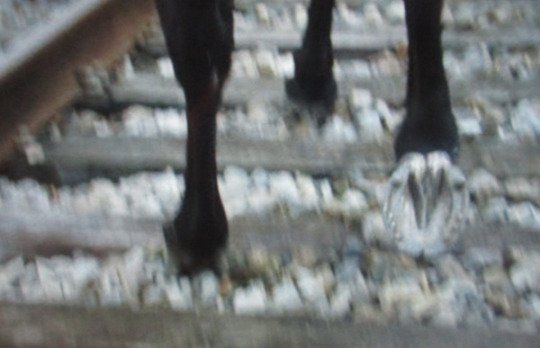
Coinciding with that Road to Gabon, Lionel, “the rascal,” has lost Rene, but in the course of a rhapsody/daydream on the job, he conjures a horse and a wagon on the tracks as far back as the heights of Jof and Marie. Somehow the image of Jo also appears, for a fraction of a second—this being an apparition for the ages, regardless of stiffs like Noe. And thereby they take off the tarp from their long-dormant Volkswagen van in the underground of the facility (close to where Gabrielle parks, with the little touch of pedantry masking her roof-light to offset rascals), to play one last (confused) victory lap, to Germany (where Jo learned to speak German before reaching Paris after her mother’s early demise). In a cast generally mustering understated performance from blacks and their secret hideaway to transcend a terminally polluted mainstream presumptuously claiming to be viable, the home stretch unveils an elderly German lady (Jo’s grandmother), who takes over—a bit of a scandal in an era of race obsession—as a Bergman oracle, typically smothered by a roster of fakes. “We don’t see you enough. That’s the way it is now. We all live such withdrawn lives [Jo, if only she were alert enough to grasp the outrage being alluded to]. Everyone in his corner. Every man for himself. Would you like some coffee?” (Jo’s capitulation coming across subliminally, as in, “Yes, I would Ma’am.” The hostess retorts, “You don’t have to be so formal” [largely mundane, Jo, having succumbed to formulaic piety and smarts]. You must have been driving all night [as with Jof and Marie, on that long night when “formal” Death commanded nearly everything in sight]. You can stay for lunch, or even spend the night.” Jo replies, in German, “Thanks, but we want to get back on the road [brave words, but here the usual subterfuge; and masking, I’ve got a wedding to bring off, with a fake acrobat]. Maybe some other time” [when hell freezes over]. Does this obtuse connectivity derive from Denis’ background in Africa?) The old gal, disappointed with her prim relative, subtly mocks, “Some other time…” She swings past this transmission problem, however, by recalling a (very) brief joy. “Your mother said she fell in love with a guy in Paris. I asked her, ‘Is he cute?’ [oracles not likely to pose such questions in a straightforward way]. She looked me straight in the eyes and said, ‘You’re going to like him’” [the speaker has a troubled face and she looks downward]. Rallying once again, in face of this semi-invasion, or Death, she finds something lively. “I taught her to swim. She was scared of the water. We’re all scared of it. I’m also scared of that [nearby, North] Sea. So vast, so wide. And when you scream, no one hears you… Lionel, do you remember that time when we all went swimming together? We basked in the sun. Lost in the dunes [ring a bell?]… Good wine [she smiles]. Not always that good” [when Lionel was buying; the volatility raining down, and needing to be met]. Though he would not follow the verbal language, there was, in the body language of this transaction a delivery of that day. A delivery the steady and gentle “cute” “rascal” chooses to ignore. “You don’t remember?” she asks him. Her hurt, from this lie, is short lived. “Why don’t we drink some wine? A little glass of wine, now. Why not?” (There is a cut to a wall in that room, showing Jo as a baby held in her mother’s arms; and a dark print of a nude woman seen from behind, treading into the sea at night with a moon casting moonlight on the sea. Iconic matter, to someone, anyway.) “A little glass,” she perseveres. Then they are all drinking that wine. Lionel silent, in a dilemma, unsheltered by his usual comrades. The oracle has more to say. “Sometimes it seems the whole world is scared of suffering. Everyone wants either total stress or some peace in their happy little lives. But not us, not us! We’re strong, aren’t we? Aren’t we Lionel?” The latter minor poet, gracing so many rigors, comes up empty here, very well understanding that he is hated. “I’m glad Josephine gets by in German. It makes me happy” [dipping into the “happy little, prosaic lives” so potent in Bergman’s Fanny and Alexander]. “Just like your dad” [to be a stiff], the lady, clearly fluent in French, skewers a surprising target.
After a short stop to the grave, pouring some water on the flowers, while golden leaves waft down in lieu of almost total neglect, the van reaches the shore, recalling the embarkation of buttoned-down Block and his squire (the aristocrat who fails, and the salt of the earth, who also fails), coming ashore from a crusade centuries ago. It’s All Saints Night, and a group of children, carrying lights and singing, goes by their caravan, etched vividly in the twilight as they negotiate a ridge. Peering out of their home away from home, they fail to pierce the urgency of that full-hearted dash for the sake of a lively life, so long ago and remaining to be fulfilled.
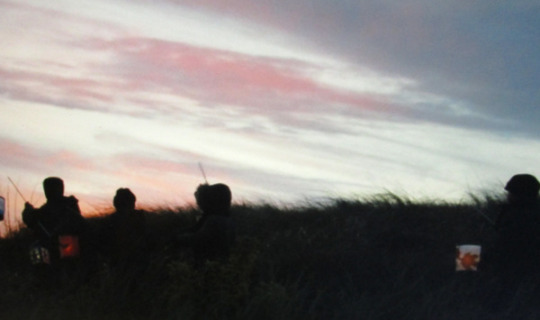
How dare, then, Lionel’s wedding gift of a rice-cooker (“Living Tech” brand), snow-white with a few sissy images at the base—as if to look down upon Jo’s retreat? The slight fails to register with Jo, but it had better register with us. There are many enclaves on this planet sworn to never hear a discouraging word; and some—like that of the club we’ve just taken the depths of—actually being overachievers. But thanks to that oracle, our love affair of the sweet (musical) suite and the sweet apprehensions (as in the small handful of great Demy films) must unequivocally demand more. As the wedding reception rolls on, with a pianist a bit less sweet and a bit more bitter, Lionel climbs the rum shots game, to perhaps reach something to quieten his malaise. “A moment like this only happens once,” he overstates. Neither a consummate acrobat with his rum, nor a consummate juggler with cronies, Lionel—harkening to that siren call having endowed those falling short in Demy films remaining lovable (and a lovable longshot for reaching the strictures Jof had in mind a thousand years ago)—settles in to enjoy the party. But his miasma (far more potent than the ton of rum he’s feeling as we leave him while never forgetting him) is the real concern of this masterful film.
As if a divided homage to this rather secret society—and especially the secret society that was Lionel and Josephine—Denis has planted several factors in her film which amount to a possible blossoming of a long-overdue being “strong,” and not being “scared of suffering.” Some we have already encountered—for instance, Lionel and Jo on a long-ago horse, implying proof against the fear of the likes of Rene. And yet a mark of shame, due to that shining, though flawed, accomplishment of Rene, so more honest. This touches upon the pedantry of Josephine, in action during her college preparations, to become what many others insist she settle for. She mouths, like so many others before her, that “the Global South has not been handed the credits to thrive. “It is neither right nor wrong. Rules, used to manage international debt-loads, impose trouble upon countries in debt. I don’t think we can ignore (Joseph) Stiglitz” [American Nobel Prize winner, in the field of “Economic Sciences”]. (The Prof notes, “You say it as if it’s totally self-evident. It’s a little pedantic…” [pedantry eliciting fear, as in Wild Strawberries]. Another student—coinciding with flawed but somewhat cogent, Rene—argues, “When we revolt, it’s not for a particular culture. We revolt simply because, for many sources, we can no longer breathe…” More bookishness surfaces during Rene’s finally returning a book he borrowed from Lionel. The latter admits that he had forgotten all about it. The subject was about the evils of being “educated to death,” which, it transpires, had become a joke amidst the cognoscenti. The title was Mars [War]. We can well understand why he, so scared of suffering, forgot about it. But that he touched it at all, is a revelation!) On Noe’s wall is a poster, titled, ODISSEA 2001. Flashy optics. No Mars. Their marriage won’t last a year. Then, what?
Many viewers, with a didactic bent, have inferred that 35 Shots of Rum is patterned on the Yasujiro Ozu classic, Late Spring (1949). They claim to have strong evidence by way of the Denis documentary, Talking with Ozu (1993). A few narrative steps do coincide; and the rather precious disinterestedness of the Japanese protagonist does (vaguely) show that area of musicality here. Could the contrasts between the films be urgent here—Denis’ film being modern cool, while Romantic Ozu fumes about the cruel frozenness of Japanese action? Another aspect of Talking with Ozu, is her warning that she “dislikes auteurism and the cult of cinephilia.” The pros read this, and proceed nevertheless—a move like stepping off the observation deck of the Empire State Building. The bona fide involvements here, with Bergman and Demy/Legrand, have very little to do with the movie industry, as it has chosen to fool with.
0 notes
Text
Friendship ending
A lot of people have had friends dump them because they either voted for Trump or don’t hate Trump enough.
And when they are forced to see that the friends they try to dump aren’t horrible people, they perform mental gymnastics to convince themselves that their former friends are horrible people.
The following is a long rant from one such friend of mine and my response. If you recognize who it is, I DEMAND you seek no reprisal from them. I am keeping them anonymous to protect their identity for just that reason.
... A leftist, really now. Ahaha, oh wow.
*Link to the post I made about Lincoln being shot by a Leftist*-Z
Yes, noted Confederate sympathizer and anti-abolitionist John Wilkes Booth. A leftist.I was already keeping you at a healthy arm's length while putting up a vague semblance of friendship for the sake of not rocking the boat on that one server we're in, but holy shit have you ever lost your damn marbles. I can't do this, lmaoI mean, you've got an impressive collection of bullshit on that blog of yours all around, but this? chef kissHonestly, on some level, you impress me. How someone can claim to be anti-establishment while sucking up to the establishment every possible way they can, how someone can claim to be "seeking truth" only to disregard all evidence that can't be traced back to some skeezy reactionary Facebook page or another delivered to you through the impermeable little bubble of right-wingers you've created for yourself along with the right wing side of mass media your purportedly loathe so much... tell me, just how much cognitive dissonance do you deal with on a daily basis?How does it feel to claim to be "pro life", or to claim that you care about others only to push for measures to restrict access to healthcare, or to vehemently yell against anything the government could do that would make it easier for people to come out of the vicious spiral of poverty?(edited)How does it feel to constantly pretend to care about minorities, but only ever use us as gotchas to other minorities that you've internally designated as universally bad in spite of any evidence to the contrary - not to mention, without ever listening to us if we tell you you did something wrong, instead cherry picking those of us willing enough to suck up to the establishment to tell you what you want to hear, so you never have to confront the idea you may have done something wrong?(edited)Hell, isn't that what they call "virtue signaling" in your circles?Beyond your dishonesty to others, ask yourself this: are you even honest to yourself? Aren't you robbing yourself of any kind of personal growth by doing all this? Are you really contributing anything positive to this world by constantly spreading unchecked factoids that instantly fall apart the moment you expose them to any actual scientific sources (you know, the ones people in your general political corner like to call "fake news"), or by spreading the idea that people in dire straits should just pull themselves up by their bootstraps?Or for that matter, by resisting any measure of change towards a fairer society and instead vocally gushing about the virtues of a system that, by its very nature, its very definition, its very -essence- is about fucking over who you can, and quietly plugging your ears to anything you hear about the many negative consequences it has for the world, or the people living in it?Come back to me once you've learned how to maintain a shred of integrity, I suppose. Maybe take some time to reflect on what it means to be a good person. I can't be friends with someone to whom I have to explain why they should care about other people.Goodbye.
This is my response:
In 1865 John Wilkes Booth, a Democrat, assassinated Abraham Lincoln, President of the United States.
In 1881 a left wing radical Democrat shot James Garfield, President of the United States who later died from the wound.
In 1963 Lee Harvey Oswald, a radical left wing socialist, assassinated John F. Kennedy, President of the United States.
In 1975 a left wing radical Democrat fired shots at Gerald Ford, President of the United States.
In 1983 John Hinckley, a registered Democrat, shot and wounded Ronald Reagan and paralyzed a member of his cabinet.
... In 1984 James Huberty, a disgruntled Democrat, shot and killed 22 people in a McDonalds restaurant in San Ysidro, CA.
In 1986 Patrick Sherril, a disgruntled Democrat, shot and killed 15 people in an Oklahoma post office.
In 1990 James Pough, a disgruntled Democrat, shot and killed 10 people
at a GMAC office.
In 1991 George Hennard, a disgruntled Democrat, shot and killed 23 people in a Lubys cafeteria.
In 1995 James Daniel Simpson, a disgruntled Democrat, shot and killed 5 coworkers in a Texas laboratory.
In 1999 Larry Asbrook, a disgruntled Democrat, shot and killed 8 people at a church service.
In 2001 a left wing radical Democrat fired shots at the White House in a failed attempt to kill George W. Bush, President of the US.
In 2003 Douglas Williams, a disgruntled Democrat, shot and killed 7 people at a Lockheed Martin plant.
In 2007 Seung - Hui Cho, a registered Democrat, shot and killed 32 people in Virginia Tech.
In 2010 Jared Lee Loughner, a mentalliy ill registered Democrat, shot Rep. Gabrielle Giffords and killed 6 others.
In 2011 James Holmes, a registered Democrat, went into a movie theater and shot and killed 12 people.
In 2012 Andrew Engeldinger, a disgruntled Democrat, shot and killed 7 people in Minneapolis.
In 2013 Adam Lanza, a registered Democrat, shot and killed men, women, and children in the Sandy Hook school massacre.
Leftist? Maybe JWB was, maybe he wasn't. But a Democrat, he assuredly was. Perhaps I overreached in saying he was a Leftist, but I should clarify that when I say 'Leftist' I don't mean 'someone on the Left'. I mean someone who believes The Left is the ONLY way. The same way I draw distinction between Muslims and Islamists. Islamists want to push it on others. Muslims are the broadest defition of those who follow Islam.
And what establishment am I sucking up to....? I don't watch Fox with any kind of regularity. I get most of my facts from self-described 'classic liberals' whose hearts are on the Left, but their minds are more centrist. They have intellectual honesty. I listen to Gavin McInnis to blow off steam, Bill Whittle for the Right of Center take on news and Sargon for Left of Center.
I don't care for the mass media because while I suspected that they were liars and obfuscating before, to finally have iron-clad proof of it is extremely liberating.
And I CHALLENGE YOU to show me where I said that women should not have access to healthcare. Or even hinted at it. What, you think because I know Single Payer is garbage that will create a pile of corpses. I'm against healthcare for women? I've even said that my stance on abortions is that it should be between the woman and her doctor, not the woman, the government, the doctor, some pencil pushers and more. Just as my stance on same-sex marriage is that it should be between a couple and the church of their choice, not to make it legally compulsory and simply flip the oppression over rather than making it fair and equal of measure. And where abortions are concerned, the parental rights of the father are nonexistent. Now, in cases such as incest and rape (Which if you look at the stats, represent a small minority of abortions) still strongly urge the mother to consider life, but if she chooses abortion, while I find it extremely distasteful (The child DOES NOT HAVE A SAY IN THIS) I fully understand and sympathize with the decision.
As for helping people out of poverty, you know what's the BEST way out of poverty that ISN'T a government program?
A job. A simple job. And if the government creates conditions that *encourage* job growth, then you accomplish the same end without making people dependent on the governmnet.
That's not to say that there shouldn't be charity for people who TRULY cannot help themselves. That's a given. But when you extend the scope of those within the perview of the government to give money to to include people who CAN help themselves, then you create dependents. And it's not that they're bad or lazy people. They're taking the least complicated route. If you get more money for not working than you do for working, you'll take the one that affords you free time to spend with your family, friends or on your own pursuits.
Constantly pretend to.... universally bad...? WHAT....? Dude, don't even try that one. Blah-blah, anyone Right of Mao is racist, blah. Pardon my French, but go fly a frikken kite. In my tabletop gaming group, my friend Paul, 2nd Generation Japanese immigrant, is the most decent and kind man I've had the pleasure of knowing. He's a good dad to his kids and a good husband to his wife. My freind Zach is from a huge Filipino family and he's the best GM I've ever met, short of my oldest brother. John grew up in a Cadillac before his parents legally became citizens and came up to America from Mexico. These are guys I trust, literally, with my life. And none of us give a crap what the other looks like.
And I admit, for a while I was 100% not on board with Transsexualism. But since then I've come to stand that an adult who has spoken to a therapist and doctor, sorted out their feelings and decided after consideration that they wish to transition is completely fine by me. It doesn't hurt me or anyone else and if they've spoken to a therapist, then they're not setting themselves up for something regrettable. Now, trans-trenders, who want the status of being special and different, but don't want to go through the heartache and effort of making that transition, I call out for their bullshit, because not only are they full of shit, they're robbing REAL transsexuals of their credibility, their agency and their respect. And for some transsexuals to come out and say 'You don't have a right not to have sex with a transsexual', can't you see how that would rub some folk the wrong way?
Don't even try to talk to me about science, friend. I studied biology, agricultural science and psychology and I know a thing or two and when someone obfuscates or has nothing peer-reviewed, then I get suspicious. Again, I'd sorely love for you to point out where I was 'anti-science'.
And if you're suggesting that Socialism is your fluffy 'Fair Society' then I suggest you travel to Venezuala. I have a friend who lives there and the picture he paints is NOT a pretty one. How do you define a 'Fair society'? Because I define it as a society that rewards effort. You do a hard day's work, you make a fair wage and you work your way up the ladder. You can't try to take luck or privilege into account on EITHER Socialism or Capitalism, because there is no way to quantify the variable of luck and when you look at privelege, then it exists in the pipedream of Socialism too, because the people running it will ALWAYS BE BETTER OFF than the people who are not. That's simple human nature. The Great Wheel of Life as the Buddhists describe still exerts its effect on a Socialist state as much as a Capitalist. But unlike Socialism, at least in Capitalism you have, barring disability, the same shot as anyone else does to earn a good living.
I find it laughable that you sit there, where you are, and decry someone you know through occasional chats as either a good person or a not good person based on arbitrary variables.
See, the truth is that life is not as black and white as that. It's an exquisite composition of greys and other colors.
Sometimes life is good, sometimes life is not, but if you are free to self-determination (Something you DO NOT HAVE IN SOCIALISM) then you have a chance to better yourself. You DARE to accuse me of not caring about people out of one side of your mouth, while, with the other, propping up Socialism, which *DOES NOT CARE* about people to the point that a child is worthy of sacrifice due to SIMPLE INCONVENIENCE?! Sorry, but *fuck* that is the very cognative dissonance you accuse me of in plain and flagrant view.
I push myself to be a good person. I don't hurt people, I volunteer, I help the seniors at my church with many needs, I'm there for my friends and family and will drop what I'm doing to help, I treat everyone working retail with respect and actively try to make their day brighter, I don't care what color someone's skin is, I don't care if someone is disabled (My best friend back in Youth Bowling League and a better bowler than I, was a deaf boy named Arron), and I am generally considered to be very 'chill' in person and am so without chemical intervention. Does that make me a good person? I don't rightly know. I just do the best I can with what I've got. And I don't *dare* to assume that I have moral highground unless it's a truly clear-cut case. I've never killed, raped (Even though 3rd Wave Feminism insists that in every man there is a rapist that needs to be taught not to rape_) or stolen anything (Some shoplifting in my youth notwithstanding). In other words, I try to be a decent and polite person and let the world decide if I am or not a good person.
But what boggles my mind is that the line between good person and bad person is tied DIRECTLY to what side of the political spectrum they fall under. That is simplisticly childish. As is the 'Come back to me when you care about people' nonsense.
I will again wait for you to come to your senses and realize that life is not a cartoon with cartoonishly one-note people.
Genuinely warm regards,
-Zucca
4 notes
·
View notes
Text
The characters of A Captive State
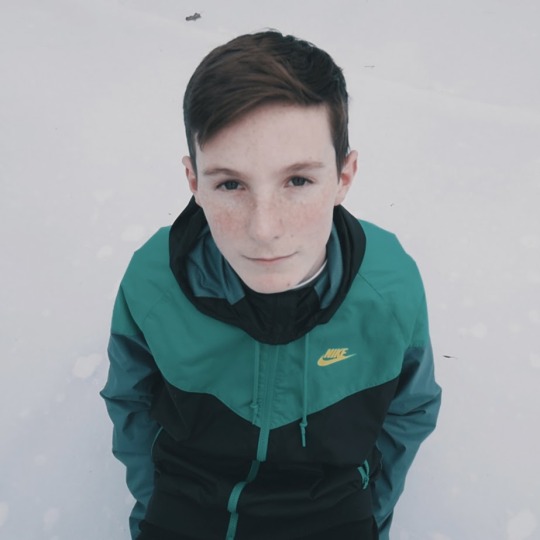
Brian “Jurgis” McPhee (born 1983), is one of the four main protagonists of the story, he was the older brother of Rula McPhee. He was the only two of four main protagonists (supposedly alongside Gabe Conway), to having their mysterious abilities from the aliens. Born in the village of Tinley Park, At the age of 3, Jurgis was attacked by the mysterious alien invaders while he was sleeping in the bedroom of his family home in Tinley Park (Illinois), and he suddenly became stubborn and kleptomaniac. By the age of 7 in 1990, Jurgis left orphaned after his family were murdered by the US military. After his parents were murdered by the US military, Jurgis moves in the Wicker Park by his friend named Jerry Hawk (8oone) and his other Hell’s Lovers MC members (including Cody Ellison) in 1991. After moving to Wicker Park, Jurgis was discovered by the FBI after hiding in Goose Island brewery alongside many hobos in their 10s and 20s. After Jurgis went out of jail, Rula discovers his new name was faked, and that his real name was Brian McPhee. He claimed his new name after murdering his abandoned Lithuanian boyfriend in Chicago. Alongside his adopted sister Rula, Jurgis was an avid heavy metal fan. His favourite hobby was playing guitar and skateboards. His favourite radio station were Adrenaline 90.4, Juvenile 101.5 and Chicago Hardcore. Jared McKenna portrayed Brian “Jurgis” McPhee. Although he was born in London, Jared McKenna had started his acting career in 2006, while he first appeared in the long running police procedural series CSI: Crime Scene Investigation and in 2007, his feature film debut was Joe Wright’s period drama Atonement. He took his recent success in the 2018 movie Solo: A Star Wars Story, while portraying the young Han Solo. In January 2017, Jared McKenna had officially cast as Brian McPhee in A Captive State. Jared McKenna had cited Cole McGrath from InFamous and Stranger Things’s Mike for his portrayal of Brian McPhee. Cody McKenna plays the role of Jurgis McPhee ages 6 to 10.
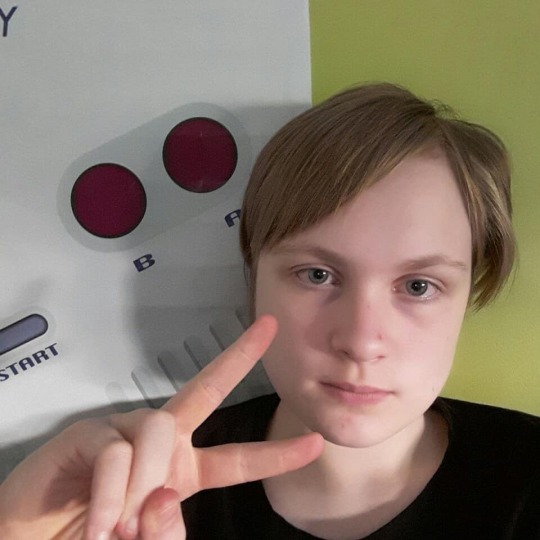
Caroline “Rula” McPhee (born 1984), is one of the four main protagonists of the story, and she was the adopted sister of Brian McPhee. Her birth name was Caroline Howell. She was dressed like a young boy, to avoid her childhood memories. Rula’s parents were originally from Britain, but she left orphaned after her parents were murdered by the US Army’s 3rd Infantry Division while visiting Navy Pier in Chicago. She had an adopted cousin named Danny Howells, a young brother who came to Chicago around the early 1990s (although Danny was not a biological brother of her). She was a biggest fan of rock music. She lives in Pilsen neighbourhood with her boyfriend Narciso “Nark” Hernandez. Her favourite radio station was Juvenile 101.5, Adrenaline 90.4 and Willows 103.1. Non-binary actress Damian Ruane portrayed Rula McPhee. She came out gay at the age of 7 in 2010, and she made her acting debut in her native Ireland with TRTE’s children’s show Roy. At the age of 10 in 2013, she made her breakthrough role in the UK with BBC’s long running medical drama Casualty. In January 2017, Square Enix had already found the 14-year old Irish actress Damian Ruane (Casualty, Roy), for auditioning the role of Rula McPhee.

Gabriel Conway-Drummond (born 1985), is one of the four main protagonists of the story. Victor “Vic” Kamanga portrays Gabe Conway. After his parents were murdered by the members of the US Army’s 3rd Infantry Division, Gabe finds his childhood memories leading to the alien invasion of Chicago. His favourite radio stations were The Beatz 95.1 and The Rhythm 92.5. While auditioning for Gabe, Square Enix already found Vic Kamanga, when he played the role of Alessio Jones in Spectral earlier in 2016. In January 2017, Vic Kamanga had choosen to play the role of Gabe Conway in A Captive State, and the motion capture work had began earlier.

Raphael “Rafe” Conway-Drummond (born 1979), is one of the four main protagonists of the story. Ernest Jamieson “Ernie Jay” Wilkes portrays Rafe Conway. Gabe and Rafe shared their relationships together. After his parents were murdered by the US Army’s 3rd Infantry Division, Rafe and Gabe reunited together when they’re returned back to their home in Chicago. His favourite radio stations were The Bronx FM and The Rhythm 92.5. When he was only 5 years old in 2007, Ernie Jay Wilkes made his acting debut with the long running BET sports drama series The Game. At the age of 11, Ernie Jay Wilkes made their breakthrough career in Starz’s hip-hop drama Power, which features the legendary rapper 50 Cent and Omari Hardwick.

Caroline “Carrie” Conway-Drummond is portrayed by Steph Oliver. She was the younger sister of Gabe and Rafe Conway. She was also the tritagonist of Gabe and Rafe Conway. She is also Cody Ellison’s girlfriend, and therefore affiliated with both Ellison's crew and her friends Jurgis and Rula McPhee. After learning about Colonel Levitt’s and Alan Rittenhouse’s betrayal, Gabe requests that Ellison bring Carrie to safety by fleeing from East Chicago from the US military raid. Later in the storyline, Ellison pondered proposing to Carrie but the question of whether she accepted or not remains unanswered. Carrie is depicted as intelligent and pragmatic which suggests that although her brothers Gabe and Rafe turned to anger and betrayal as the US Army had in war with Scavengers in Chicago.

Crystal Billy Saunders is portrayed by Tristan Wick. He was the homeless teenage boy living around Jurgis McPhee’s apartment (2145 West Evergreen Avenue) in Wicker Park. In 1992, when Jurgis trapped in Goose Island after the US military raid, Crystal Billy and other Hell’s Lovers MC members discovers him after he was sleeping alongside the hobos in their 20s and 30s.
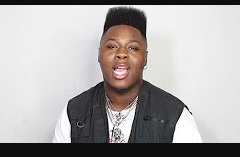
Leeland Posner is portrayed by Denzel Dion. He was the homeless young man living around Gabe and Rafe Conway’s apartment in 1234 North Kedzie Avenue in Humboldt Park.

Daniel “Danny” Howells is portayed by Josh Bartosz (ItsJosh). He was the adopted cousin of Rula McPhee and deuteragonist of Brian “Jurgis” McPhee, one of the four main protagonists of A Captive State. Danny was the young British drug addict who came to Chicago as far in 1994, while he first met Jurgis McPhee at his apartment in Wicker Park. As the storyline suggests, Danny was the adopted brother of Rula McPhee during his arrival in Chicago. As a member of the Phoenix, Danny aids Jurgis plots an attempted assassination of Colonel Charles Levitt of the US Army’s 3rd Infantry Division, as well as participating in the raid against the Disciples. Danny is nicknamed "The Violent Englishman" because he is like killing anyone who hated the Phoenix, most notably from his capability of his own mind, unlike Jurgis. He is also compete in a car race and beating Jurgis in a round of video games. There are, however, humorous occasions when he runs into walls, as well as indications that his cohorts manipulate the outcome of games played with Danny so that he would always win. For example, in one game he plays against Jurgis, Gabe, and Rula, Danny keeps asking for cars until they’re finally stands with a .45 (later calling Jurgis, Gabe and Rula "bad luck"). Another time, while practicing shooting range, his friends move the target decoys into the path of Danny ball and out of the path of the player character’s. Danny is also incapable of rugby, since his other working senses are ineffective of walking through the pitch. His favourite radio stations were Adrenaline 90.4 and Juvenile 101.5. He had a brother named Lloyd Howells (Badzz), who is later introduced in one of the main storyline missions.
Anita McPhee is portrayed by Kody Theo. She was the older sister of Brian McPhee, often she calls him Jurgis (after his dead Lithuanian lover).

Doctor Jeffrey “Evan” Hayes is portrayed by Matthew Jay Bailey (stfumatthew). He was the young physician working inside Norwegian American Hospital, becoming the member of the Phoenix, and he was the tritagonist of Brian “Jurgis” McPhee. From his life about being killed by the Scavengers during his early childhood, Dr. Hayes gives his everyday treatment to his patient named Brian McPhee, who was nearly died at the age of 3 when he was attacked by Scavengers in Tinley Park. Dr. Hayes has been widely praised for exposing the alien invasion in Chicago during the 60s to 70s, also criticized for its "overuse of hyphens". He is a leading authority in the field of PTSD and narcolepsy, and he has treated both children and teenagers. Dr. Hayes is portrayed as a charismatic psychologist and surgeon. He charges exorbitant rates for sessions (as seen in a journal where he raises his rates by a "reasonable" 75%) and does not appear to care much about his patients and their problems. During Jurgis's medical treatment, he is seen looking at Jurgis’s childhood memories from his childhood within his own visions. He appears unconcerned about Jurgis's behavior as the latter confesses that he is able to examine him without remorse. He and his wife Jean (Hope Paige) were the young physicians working inside Norwegian American Hospital.

Patrick “Cody” Ellison is portrayed by Tyler Brown. He was the deuteragonist of Gabe Conway. Patrick Ellison was possibly born around the late 1970s and previously worked as an associate of the Hell’s Lovers motorcycle club in Chicago during the early 1990s. He was previously expelled from Chicago by the US Army before his "best friends" Gabriel Conway and Jurgis McPhee entered his life. Gabe convinced him that his friends was only holding him back in life. Ellison was taken prisoner by the US Army in 1989 and quickly escaped in 1990, with Ellison deep in debt because he is still paying insurance fees to them. He then began to obsess over conspiracy theories and began working for Gabe and Jurgis as the member of the Phoenix, an independent paramilitary organization based outside Chicago. In October 1998, Ellison was executed by a firing squad by the US Army’s 3rd Infantry Division in Northerly Island, alongside Danny and Nark, by the orders of Colonel Levitt, after the Phoenix raided the US military installation south of Chicago. His favourite radio stations were Adrenaline 90.4, Juvenile 101.5, Chicago Hardcore, and Chicago Rock Radio.

Narciso “Nark” Hernandez, is portrayed by Jacob Esteban-Jacobs aka (JacobJacob15 ASMR). He was the tritagonist of Caroline “Rula” McPhee. In 1994, when he was about 8 years old, Nark meets Rula McPhee when she was hanging out with her friends inside 900 North Michigan Shops. Nark explains Rula about the plans to defeat the Scavengers and destroying the Project Anvil, the scientific project created by the US Army that is helped to protect many areas of Chicago from the attacking outsiders. In October 1998, Nark and his others (alongside Danny and Ellison) were executed by firing squad by the US Army’s 3rd Infantry Division in Northerly Island, by an orders of the US Army Colonel Charles Levitt, but later failed after three of them were escaped from the execution. His favourite radio stations were Adrenaline 90.4 and Juvenile 101.5. He never speaks Spanish.
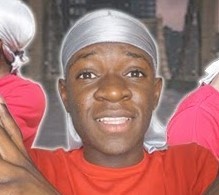
DO-5478 aka Theo, is portrayed by Louis Alcius (KidFreak). Theo was the robot created by the US Army, and serves as the tritagonist of Gabe and Rafe Conway. DO-5478 was first appeared when chasing Gabe and Rafe Conway in 1989, until it was reprogrammed (and named after Gabe’s deceased brother Theodore Conway) by Dr. Hayes inside Jurgis’s apartment in Wicker Park.
Jenny Barbosa, is portrayed by Maya Elizabeth. She was the tritagonist of Brian “Jurgis” McPhee. She had claimed her life was ruined by the Scavengers, whom she had nearly killed in 1988 when she visiting Jurgis’s home in Tinley Park. Her favourite radio stations were Adrenaline 90.4 and Juvelnile 101.5.
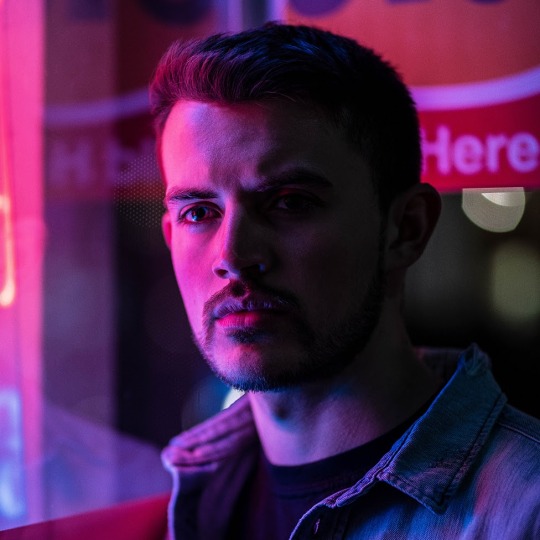
Colonel Charles Levitt, Jr. is one of the main antagonists in A Captive State, he was the member of the United States Army’s 3rd Infantry Division. Travis Robertson portrayed Colonel Charles Levitt. A distressed Persian Gulf War veteran, Colonel Levitt takes a part of the protection against the alien invasion of Chicago that happened after the great heatwave. Robertson had cited Frank Underwood in Call of Duty: Advanced Warfare and Cyrus Temple in Saint’s Row: The Third as one of many strong stylistic influences on his portrayal of Colonel Levitt. “A Captive State will not featuring the US Navy, the US Marine Corps will also included”, Travis Robertson explained about his role as Colonel Levitt.

Stuart Kermode, is one of the main antagonists in A Captive State, he was the high ranking FBI agent who was the head of the investigation against the alien invasion of Chicago. Jordan Brenda portrays FBI agent Stuart Kermode.
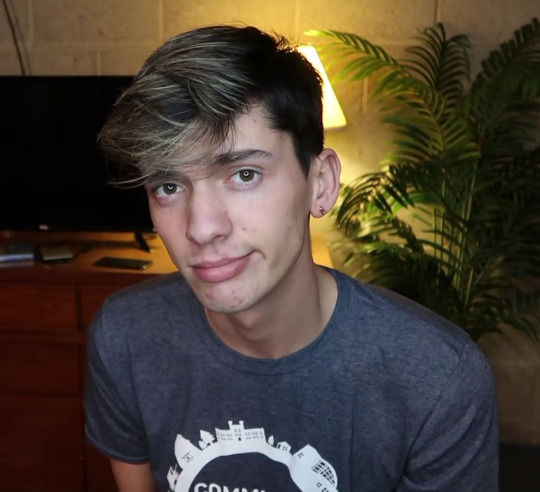
Staff Sergeant Alan C. (Charles) Rittenhouse is one of the supporting characters in A Captive State, he was the CEO of Rittenhouse Corporation, a newly formed private military contractor that is helped to end the alien invasion and anarchism over Chicago. Rittenhouse was previously serving with the US Army’s 3rd Infantry Division. After the end of the Persian Gulf War, Rittenhouse was betrayed and banished by his former mentor Colonel Charles Levitt and his men, after he wrongly accused of killing many innocent people during the Persian Gulf War. Darius Rolince plays the role of Alan Rittenhouse.

William-Joseph Mulligan aka The Illusive Man, is one of the main characters of the story. He was only one to protect their people of Chicago from the alien invasion. He was one of the main antagonists in A Captive State, alongside Colonel Charles Levitt of the US Army’s 3rd Infantry Division and FBI agent Stuart Kermode. Quinten Hyde portrayed the illusive man. Hyde cites Liquid Snake/Ocelot in Metal Gear Solid: Guns of The Patriots as one of many stylistic influences of his character in A Captive State.
0 notes
Text
365 Movies in 365 Days - #3 Fences
Coming up next:

Wow. Just wow. I got to see this film in the theater and I’m so glad I did. Talk about watching a masterclass in acting. Everyone was incredible. The direction was simple but effective and the writing was top notch. Just a little issue during the climax but first, the actors.
First up, we’ve got Denzel Washington as Troy Maxson:

He plays the father to Cory and husband to Viola Davis. And wow, this is Denzel at his best. The layers going on here and what he brings to the character, it’s just amazing. It was heart breaking to watch Denzel at the Oscars when he lost to Casey Affleck for Best Actor. During Casey’s accecptance speech, the camera would cut to Denzel and you could just see the heart break and disbelief in his face when he lost. What does this man have to do to win an Best Actor Oscar for a role that deserves it? I know he won Best Actor Oscar for Training Day back in 2001 but he didn’t win the Oscar for that role, it was really for being passed over in 2000 for The Hurricane. It’s just a shame.
Then there is Viola Davis as Rose Maxson:

What a powerhouse Viola Davis is. She is incredible. She goes toe to toe with Denzel Washington and passes him by in some scenes. Having the both of them as the leads in the movie just elevates this movie to a whole new plane. She totally deserved the Best Supporting Actress Oscar this year. I would actually argue that she should of been in the Best Actress Oscar race and she would of won over Emma Stone from La La Land. Don’t get me wrong, I loved La La Land and Emma Stone in it and she’s a great actress but Viola Davis crushed it this year.
Next there is Stephen Henderson as Jim Bono (”Bobo”):

He plays Denzel’s long time friend and adviser to keep each other on the good path. Henderson does a fantastic job of this, bringing such warmth to Bobo, you could really buy that these two guys just hang out every Friday night and shooting the shit and getting drunk. Acting at it’s simplest and most focused.
Then there is Jovan Adepo as Cory Maxson:

Another wonderful performance as the son of Denzel & Viola. Cory has the difficult job of growing up in Troy’s house and never living up to his father’s expectations. Adepo handles this character well and layers him nicely. Just giving enough of the “teenage angst” but being grounded in the real world and dealing with his father.
Playing Troy’s oldest son from a different woman is Russell Hornsby as Lyons:

The much older brother to Cory, Lyons is off living life with his new wife but he still needs Troy’s help come payday for Troy. Lyons isn’t around a whole lot in the movie but when he is there he becomes the focal point for Troy, a reminder of his past. Hornsby does a nice job with his character, just wish we got to see him more in the movie.
And rounding out the main cast is Mykelti Williamson as Gabriel, the brother of Troy who suffers from shell shock he got fighting in WWII:

Here Williamson’s acting is great here. It’s not over the top with the shell shock and you can still see in his eyes the true Gabriel in there, holding on and trying to make sense of the world again. With Troy’s interactions with Gabriel you get to see his humanity, which is not always present when talking with Rose or dealing with his own son Cory. Troy is capable of compassion, he just chooses who it goes to.
The director, Denzel Washington:

Denzel has only directed a few times, Antwone Fisher in 2002 & The Great Debaters in 2007. I think he does a fine job here with one exception which I get to later in the spoilers section. Playing the lead and directing the movie couldn’t of been easy but he makes it seem like it is easy.
The writer, the late great August Wilson:

He writes such rich and thoughtful characters and ones that sounds like real people, it’s amazing. His writing is always top notch.
And that’s our cast. Now, onto thoughts and the story and that ending.
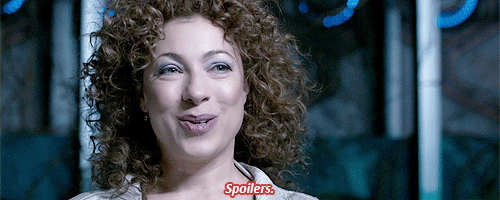
So, the story is pretty straight forward. It’s the 1950′s in Pittsburgh and Troy and Bobo work for the city as garbage collectors, they ride on the back of the truck. Troy wants to better himself and become a driver one day and he wants for his son Cory to learn a trade and begin to work right away. Cory and Rose have a different vision of how Cory’s future should be (going to college to play football) and that brings the initial conflict to the story. Troy, Rose and Cory almost work their way through that conflict when the bigger conflict gets dropped in Troy’s lap and blows the movie open.
When Troy gets promoted to driver of a garbage truck, he goes out to celebrate. He had been flirting with a woman from the neighborhood and he ends up sleeping with her. Bobo finds out about it and tells Troy he needs to be honest with Rose. So, Troy comes clean about the affair to Rose and now the other woman is pregnant with Troy’s child. Well, the shit hits the fan.

Rose and Troy fight, Troy wants to do the right thing and take care of her and let her have the baby. Rose is furious and let’s Troy have it. It’s a great scene to watch for the acting. The baby comes but the mother dies in child birth, so now Troy has to ask Rose to help raise the child. OH, FUCK!
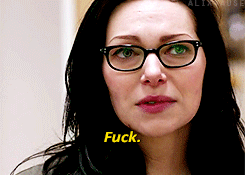
The ending is where this all starts to fall apart some. After the baby is born, Rose spends all her time taking care of baby and basically tells Troy to Fuck off, she doesn’t care about him, just the child. Bobo won’t really talk with Troy anymore, Lyons doesn’t come around anymore and that just leaves poor Cory. Cory is furious with his dad for everything he has done and feels like it’s time to say something about it. But Troy is still Troy and he knows he can take Cory down and he does. They get into an argument, then a physical fight and then Troy banishes him from the house. Then we get a weird time jump. We jump about 6 years ahead and Troy has died and everyone is back at the house for the funeral. We get to see the baby as a little girl, her name is Raynell. And Cory comes home for the first time in 6 years. He went off and joined the Marines after being thrown out of the house. There’s a nice scene at the end between Rose and Cory about Troy and who he was as a person. And then the movie ends with Gabriel coming in to blow his horn for Troy to let him into Heaven.
Here’s the problem I have, the time jump and how Cory is treated at the end. The way the time jump is used is bizarre. After Troy throws Cory out of the house, he goes into this long monologue in the back yard and it’s like he’s talking to God or something and the camera does this weird visual effect towards the end of the monologue and then time shifts to six years later. And I’m like, huh?
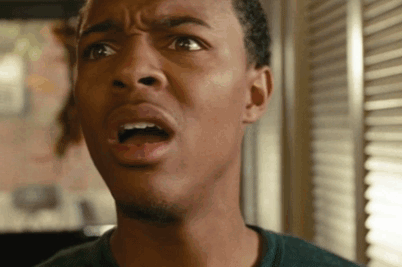
It really takes you out of the story. This movie that has been steeped in realism and almost pulls a fantasy visual effect move, it’s really jarring. Now, I know that this might be because that’s what the play does but plays have the benefit of intermissions to put between act breaks, so it makes jumps like that a little smoother. But the way it’s handled here is just bad I think.
And then there’s the treatment of Cory at the end. Cory comes home, been gone for 6 years and hasn’t seen any of them and he stills feels really hurt by what Troy did to him. Cory begins to bad mouth and talk about all the things wrong with Troy and Rose just stops him and tells him that’s he’s wrong for feeling that way. What?! She actually begins to defend some of Troy’s actions. This felt very weird too. Troy was nothing but a giant prick to Cory because Troy’s father had been that way with him. For Rose to react this way seems a little out of left field. She had basically written him off as dead 6 years ago when the baby was born for the giant asshole he was but Cory is not entitled to his feelings about his own father kicking him out of the house? And he kicked Cory out because Cory was standing up for himself and Rose and telling Troy what an awful human being he was to her. Now, this might be another transferring the play to screen something might of got lost but I don’t know, I didn’t like it. The acting in the scene was great, it’s just what’s being said that took me out of the movie.
Overall, a great movie, even with the ending. Wonderful performances, simple direction and a compelling story. Everyone should see this film. 5 stars out of 5.
#Fences#denzel washington#viola davis#stephen henderson#jovan adepo#russell hornsby#mykelti williamson#august wilson
2 notes
·
View notes
Note
Because Sashta is a cat who can't keep her hands to herself what would happen if she gently touches his wings?
I’m so glad you asked this, because during the course of writing my series, The Vulture and the Dove, I really went into a lot of detail regarding not only the religion and psychology of angels but also their biology. Any chance to share senseless amounts of background information that I spent a lot of time on is one I’m not going to pass up.
The mistake a lot of authors and movie-makers make when employing angels as characters (at least in my opinion) is to make them essentially no different than humans with wings. They walk, talk, and act the exact same way as humans. They don’t use their wings very often, or even have them “out” most of the time. And they never have any monologues, conversations, or introspection about their feelings about being in heaven, on earth, or traveling in between. It’s a done really like they’re humans with wings. And I just hate that. Angels are not humans with wings. They are not human at all, despite their humanoid appearance. So in my mind their psychology and biology should be different from humans. They should think and act differently, feel different physically and emotionally, and focus on different things of importance to them as they move through their lives. They should not experience and internalize things in the same manner as humans.
So in writing my series, I really strove to make angels (and demons as well) their own beings, and not just humans with wings. Two large points of inspiration for me, incidentally, if anyone is interested, were two movies that I loved. From high school through undergraduate college I went through a bit of an angel phase where I was really into them and wanted to write them badly. I gravitated towards movies about them that portrayed them not as humans with wings or as happy-go-lucky, sappy, glowing, white-robe-wearing, goodie two-shoes with halos over their heads, heh. Two movies that were my largest inspiration for making my own angels were these, and I highly recommend them:
Gabriel (2007)
The Prophecy (1995)
Both of those movies were really great at making angels seem like an entirely different species all their own, giving them intense emotions that affect their health almost like Elven races in Gabriel and different biological capabilities like heightened senses of smell and taste and the ability to perch in The Prophecy.
I wanted to elaborate even more on angels in my own writing, so I spent a lot of time just thinking about the world through their eyes, how their physiology would play a role in how they lived their lives, and all the emotions they would feel more acutely than humans. One of the things I really went into detail about was how emotionally angels thought of their wings, the actual biology of their wings, and how that biology affects those intense emotions.
The anatomy of my angels’ wings is that they are connected to the angel’s body via their shoulderblades and muscles of their backs. Their actual shoulder blades are the same thick bones that make up the bases of the wings, with strong ligaments and powerful muscles surrounding them. The ligaments support the thick bones and improve their stability while the muscles around them are what ultimately moves the wings around while the angel is beating them in flight. So an angel’s shoulder blades actually move around inside his back, allowing for the wings to move as needed. There is a central joint and another main bone connected by ligaments to the shoulder bone. Think of this joint as much like an elbow in nature, it can bend in only one direction.
The feathers at the angel’s shoulders are more like down, soft and dense. the majority of the wings contain true feathers, white in color as they all are unless the angel becomes morally corrupted. Past that main joint, however, the feathers get much longer, larger, and more hollow, as those are the flight feathers. There are many smaller bones that control muscle movement and feather movement throughout each wing. But along the main two bones of the wing and over that main joint is a central nerve and a major artery. The artery supplies bloodflow to the wings, and a larger one separate from the rest of the angel’s body is necessary because the heart needs to be able to pump blood all the way to the tips of the wings. Unlike demon wings, which are mostly bone and skin with very little muscle, angel wings have more tissue, more muscles and ligaments, and so they require more blood flow.
Demons know that if one wishes to incapacitate an angel but cannot get a killing shot on him with a weapon, breaking a wing will do it. Some demons, like fiends, are large and strong enough to snap an angel’s wing like a tree branch, not only breaking the main bones but severing the main artery and the central nerve. So not only will the angel be in excruciating pain from the damaged and exposed nerve, but he will bleed out in very little time. This is why angels must take care to protect their wings in battle.
But now I can get a little more into that central nerve and main artery. It isn’t all bad for angels, oh my no. In fact, gently stroking an angel’s wing along the main bone where that artery and nerve are close to the surface is every bit as arousing as stroking his.............. uh, heart. XD You see, if squeezed or bent or broken, that nerve will scream in pain horribly. But when caressed, massaged, or rubbed with great care, it will become stimulated, blood flow will increase through the main artery and the wings will become even more sensitive than before. Angels do not let just anyone do this, both because it is extremely personal and because someone in this position would have the ability to seriously cripple the angel if they wanted to. But if someone was trusted enough to massage an angel’s wings..... well.... they could really get them hot and bothered in very little time. XD But seriously, one should consider it a privilege to be allowed to touch an angel’s wings beyond just a simple stroke of the flight feathers. You know you’ve reached a high level of trust when one of my angels lets you do that. XD
And that was a really long answer to your question, but there you go. ;)
3 notes
·
View notes